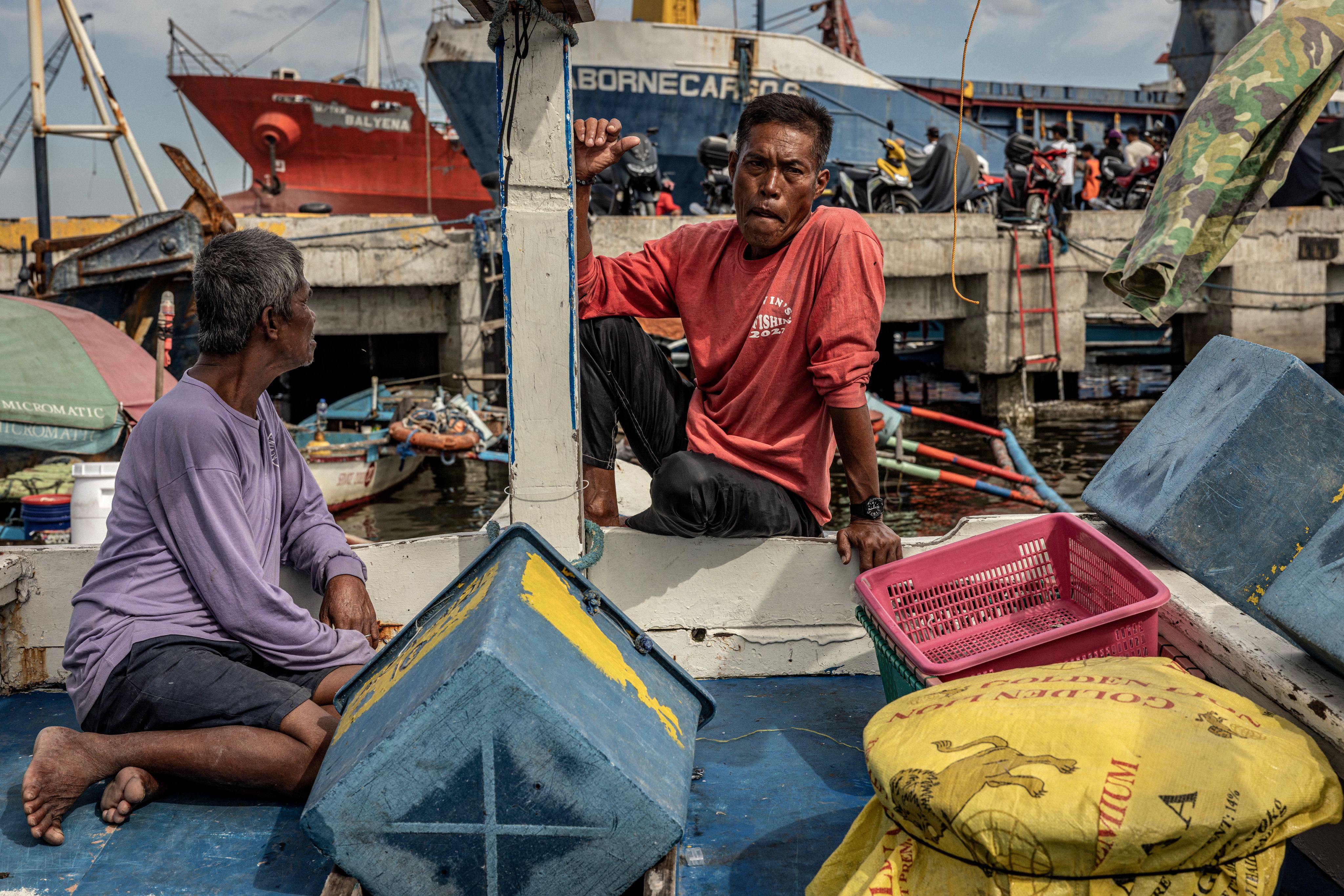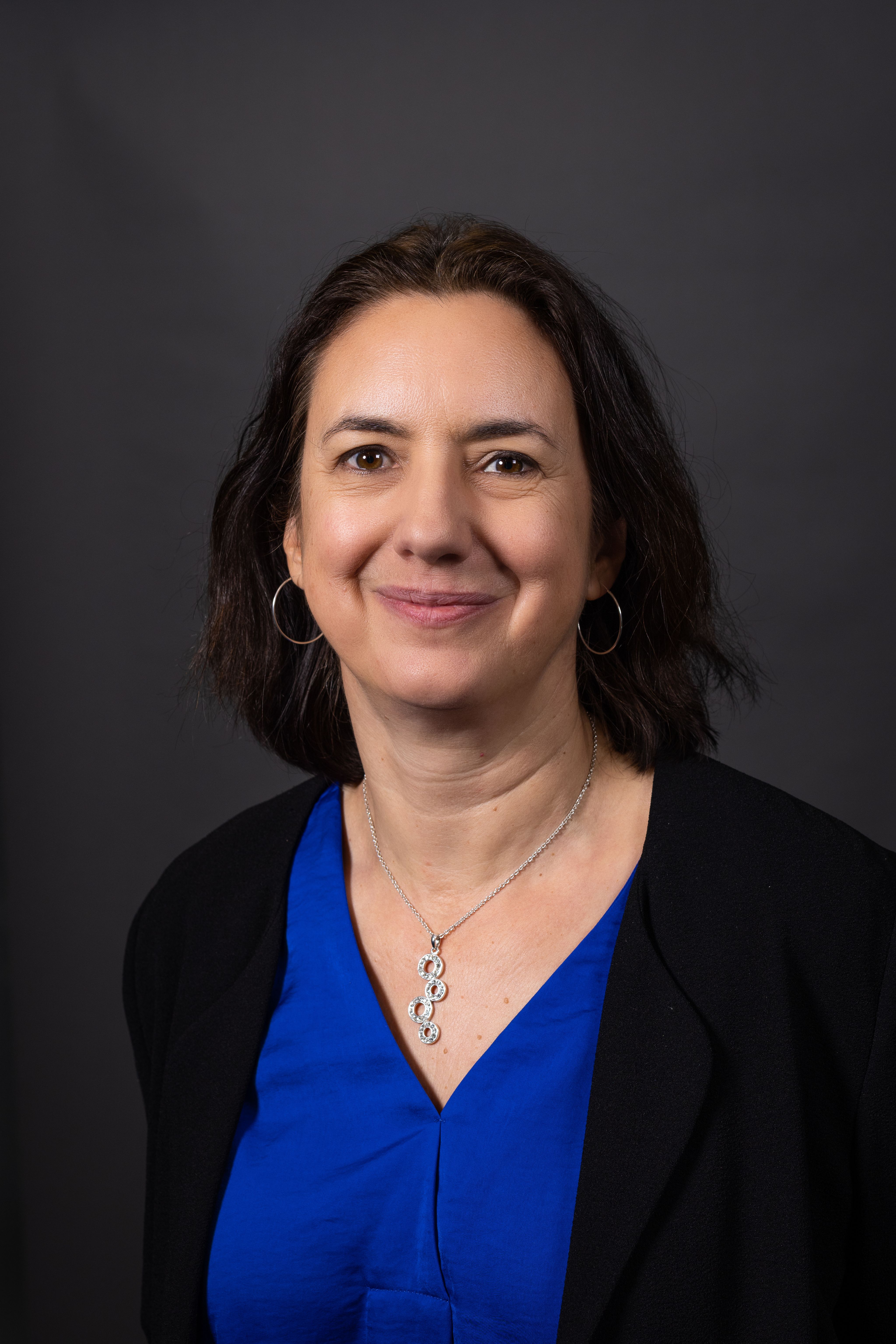A Year of Impact
The difference we made in 2024
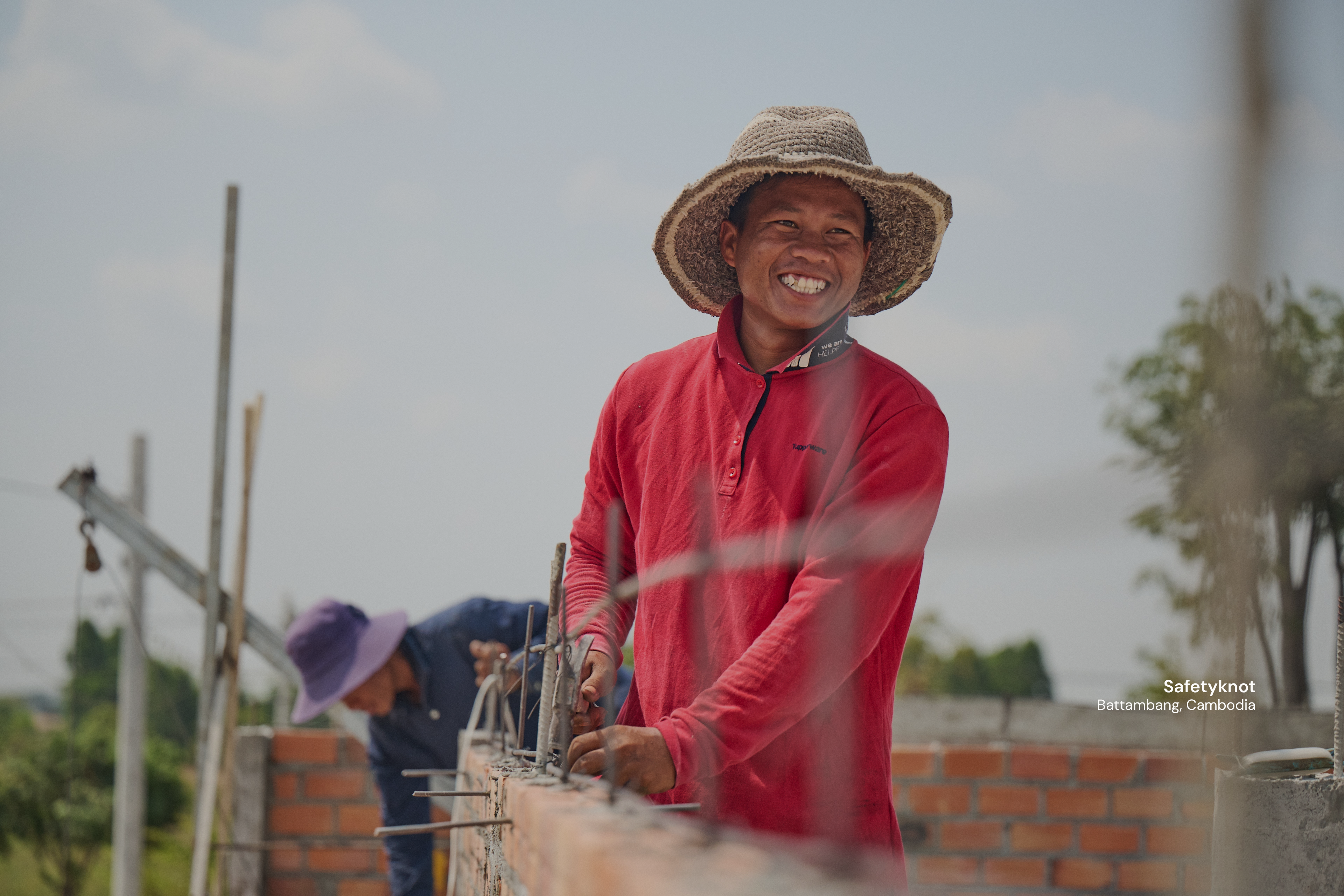
A message from our Chief Executive, Ruth Boumphrey:
A look back on 2024 – what changed and what stayed the same
As I look back on 2024, I am very proud of the difference Lloyd’s Register Foundation has made to make people safer.
Last year, more than 60 countries – home to nearly half the world’s population – held elections to choose their leaders. But many of those people still live and work in inherently unsafe conditions. Conflicts continue to create conditions of extreme uncertainty, and population changes mean that decent, safe working and living conditions remain elusive for many. A changing climate is bringing increased risks to people and communities, which highlights our need for improved, resilient critical-lifeline infrastructure on which we all depend for our safety. In addition, new technologies are developing fast, bringing opportunities for improved safety, but they also bring new risks which must be understood and managed.
Our World Risk Poll continues to provide invaluable global insight, telling us how people perceive the risks in their daily lives, and about their experiences of harm in this changing world. This data is used by many global and national agencies to bring about changes for improved safety, and we hope you will enjoy reading about some of these.
In 2024, we funded 50 new projects in 18 countries, investing over £15 million in support of our mission to engineer a safer world. We also launched our new strategy for 2024-2029 which will see us focus our resources across three interconnected priority areas: Safer Maritime Systems, Skilled People for Safer Engineering, and Safer, Sustainable Infrastructure. In addition, we will continue to build the Foundation's own capabilities, providing trusted safety evidence, and supporting learning from the past, drawing on our rich maritime heritage and unique archives.
This review of our impact shows how we are already making a big difference in these areas, but we did not do this by ourselves. I am so grateful for everyone who helps us put our mission into action: our colleagues, our global grants community, and our partners, who share our values and our safety goals. From fishing safety to artificial intelligence, and from maritime law to dealing with the risks from shipwrecks around the world, we continue to work with incredible partners, including our colleagues at Lloyd’s Register, whose expertise in shipping safety makes a big difference in supporting our work towards a safer maritime system. The collaboration, innovation, and dedication of all our partners has been the key to the progress and difference we have made together in 2024.
As we look to the future and work in partnership with others for a safer world in 2025, I look forward to celebrating more successes and achievements in the coming year. We hope you enjoy reading ‘A Year of Impact’ - and that these stories will inspire you to work with us in the future.
A year in numbers
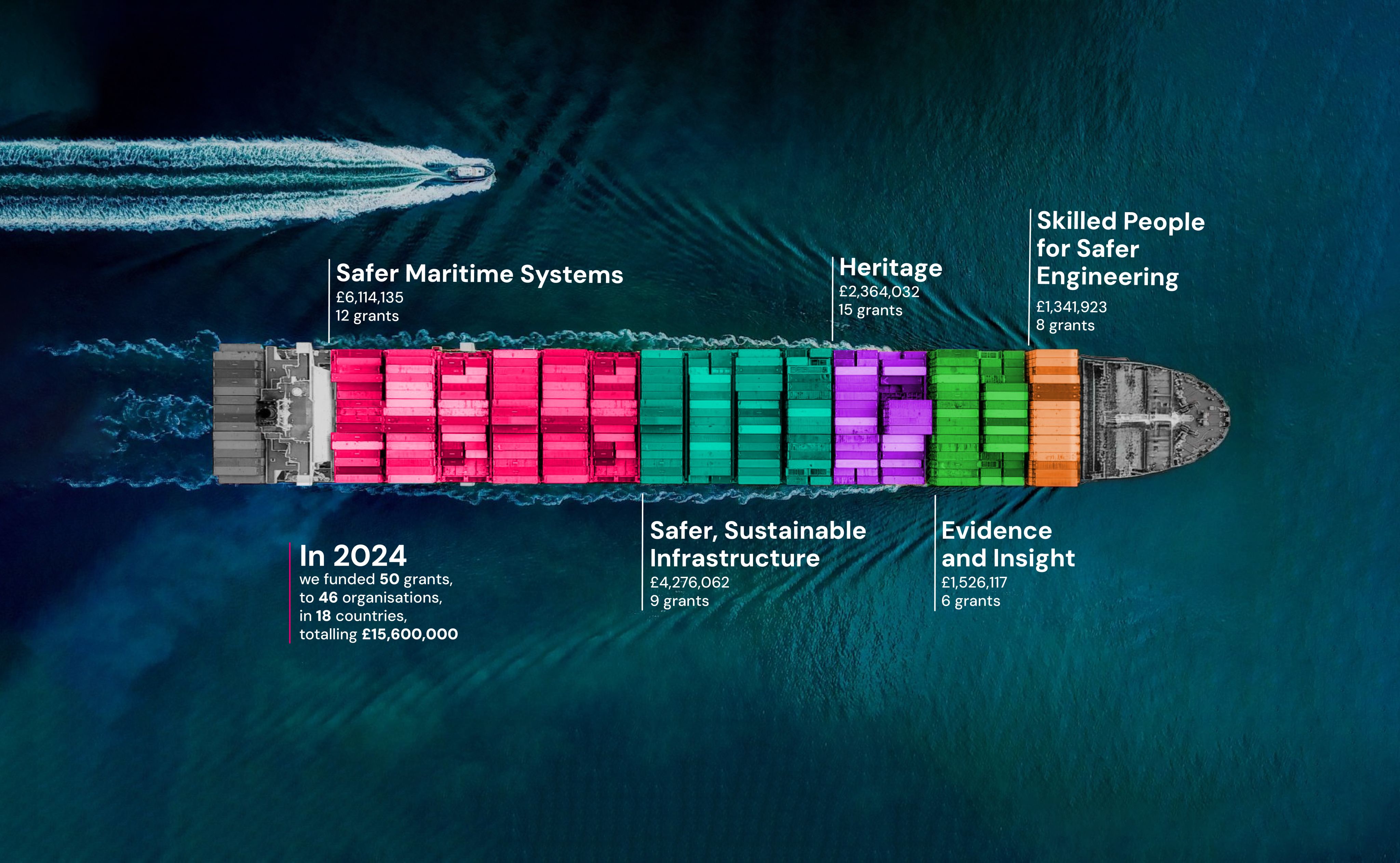
Safer Maritime Systems
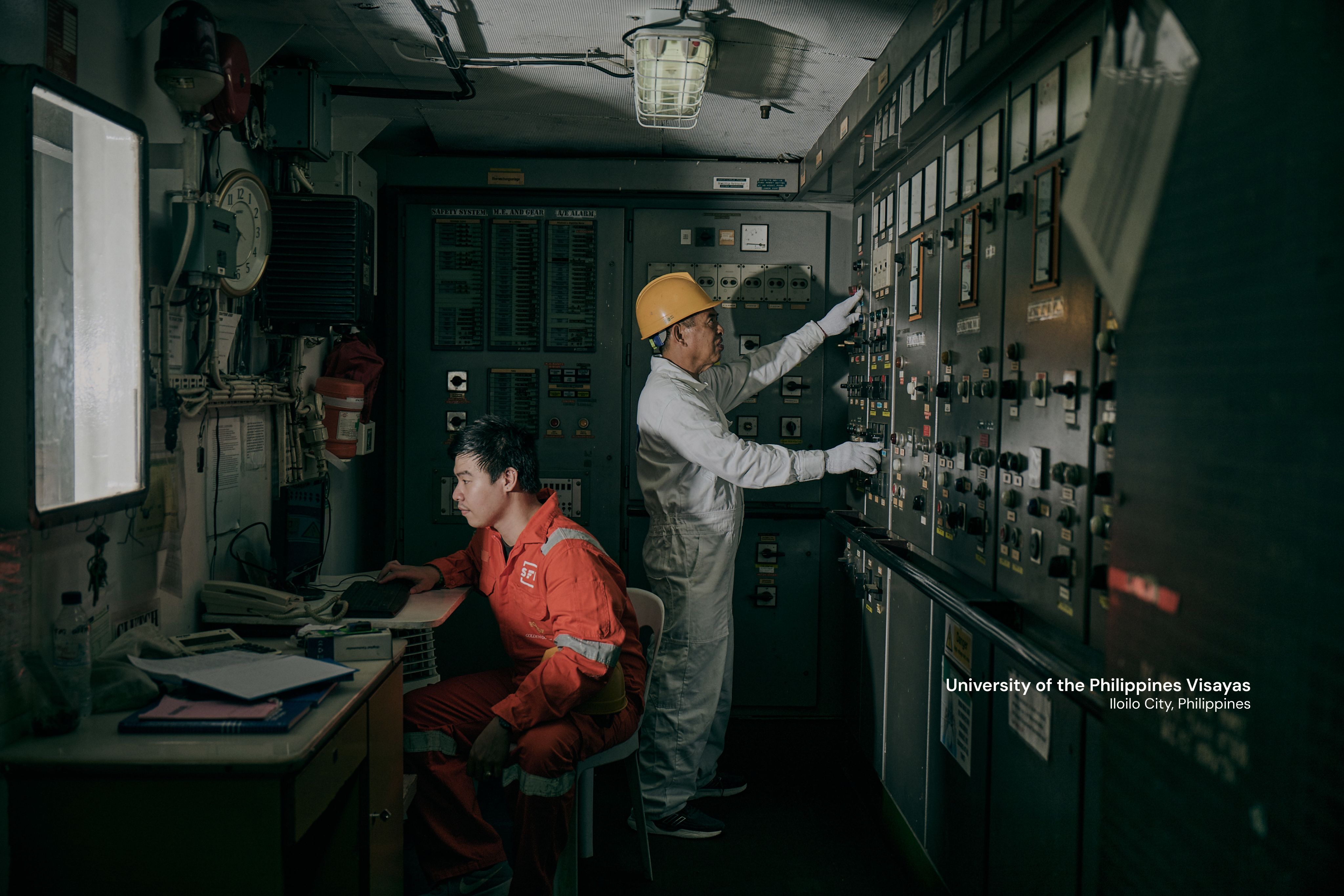
1. Uniting voices across the world to aid fishing safety
The International Fund for Fishing Safety (IFFS), funded by Lloyd’s Register Foundation, has grown significantly in 2024. Key stakeholders, including the Seafarers’ Charity and FISH Platform, ensure projects are fisher-led. Trade press engagement was high, with coverage in Fish Focus and The Manila Times.
This summer, IFFS announced it had committed funding which will help around 65,000 fishers’ lives across Africa, Ghana, Fiji, Kenya, Thailand, and Vietnam, a milestone highlighted by IFFS spokesperson Alan McCulla. One example can be found in Fiji where funding has been given for training and certifying locals as fishing crew, improving safety on board.
A communications group was established to enhance collaboration and effectiveness. A key focus is amplifying case studies from the Global South to integrate local fishers’ perspectives into safety messaging. Promoting fishing safety on the maritime policy agenda remains a priority for 2025.
2. We brought seafarer safety to the agenda at the IMO
The film “I Love You, over” was launched on the Day of the Seafarer at the International Maritime Organization in London. It tells the true love story of Filipino seafarer Arvin Toledo, and his wife Roda, highlighting the sacrifices of seafarers and their families. The film underscores the importance of seafarers, who handle 80% of global trade, and the 500 million workers in maritime-related sectors.
The event featured a diverse audience of international technical experts, regulators, and NGO representatives, providing thought-provoking reminders of the human cost of keeping maritime trade alive.
3. Making connections to improve how fuel supplies work
The Lloyd’s Register Maritime Decarbonisation Hub (Decarb Hub) has continued to deliver impact and maintain its influence in maritime decarbonisation. It has advanced consensus building through initiatives like the Silk Alliance, which fosters industry-wide collaboration in implementing green corridors. The Maritime Fuel Supply Dialogues were launched to connect energy and transport ministries in Asia-Pacific and Africa, building momentum for green hydrogen supply chains, creating local jobs, and exploring government-backed strategies to boost fuel demand and market growth.
The Decarb Hub supported ZEMBA’s inaugural tender, the first-ever collective multi-year offtake commitment for near-zero GHG shipping, and co-published a report assessing e-fuel market readiness to shape future tenders. Additionally, it delivered comprehensive training frameworks for ammonia, methanol, and hydrogen fuels, laying the foundation for IMO Model Courses to reskill 800,000 seafarers by the mid-2030s. The Decarb Hub, a joint initiative of Lloyd’s Register and Lloyd’s Register Foundation, is accelerating the safe, sustainable decarbonisation of the maritime industry.
4. Improving local weather warnings for seafarers
A small grant to the Worldwide Ferry Safety Association explored if Automated Weather Stations (AWS) linked to Automatic Identification Systems (AIS) on vessels can provide real-time hazardous weather warnings to mariners, while feeding global weather models.
The project engaged stakeholders through workshops, leading to advancements like installing an AWS on a RoPax ferry and creating a Mini-AIS device for fishers. These innovations enhanced real-time weather communication and sparked further research and potential commercialisation of new technologies to improve maritime safety.
Dr. Roberta Weisbrod, Executive Director of the Worldwide Ferry Safety Association, has been instrumental in promoting ferry safety through research, technology, and education. She spoke at the IMO Extreme Weather Symposium in London in September, emphasising the need for vessel-based maritime weather data and real-time localised weather observations for maritime safety.
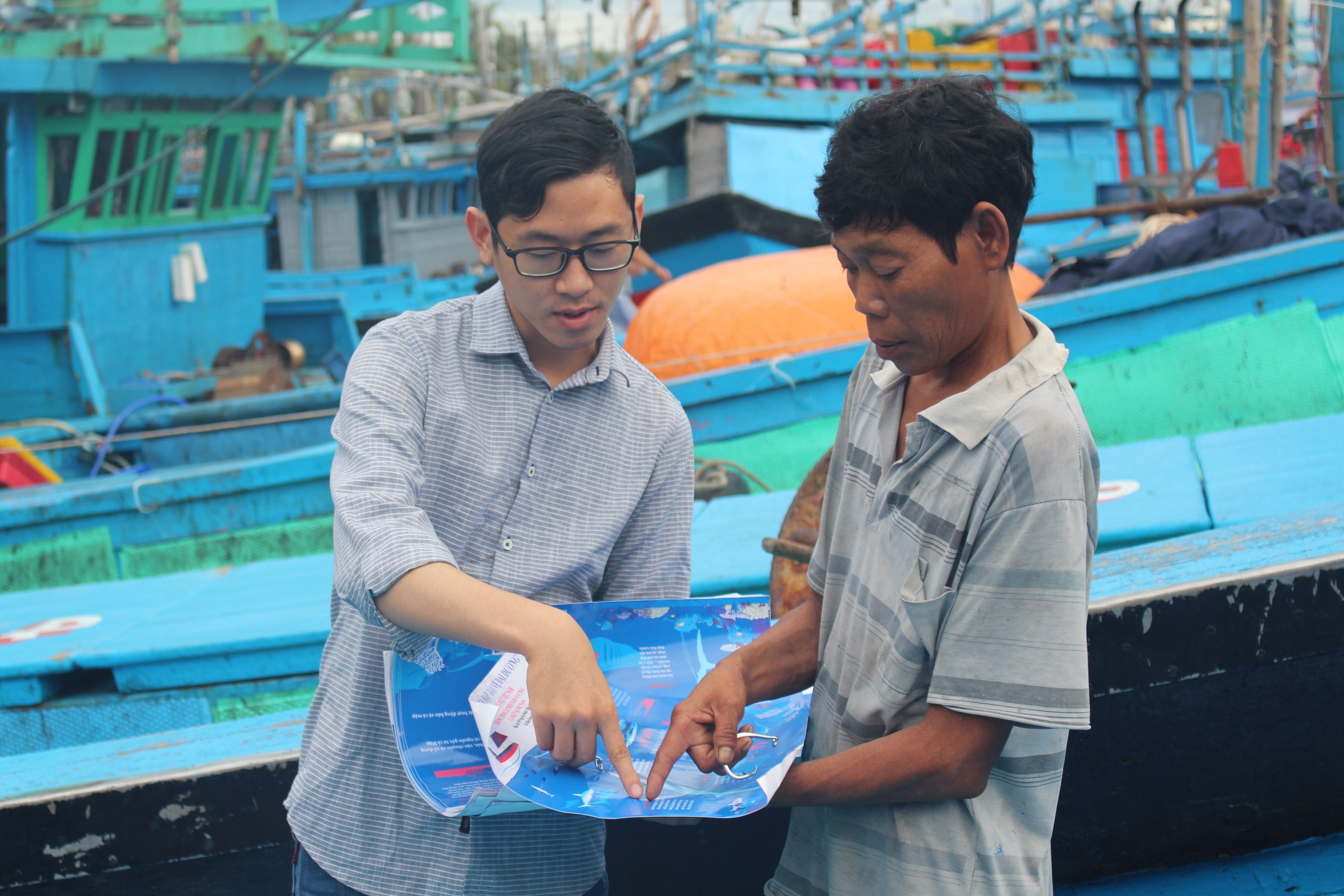
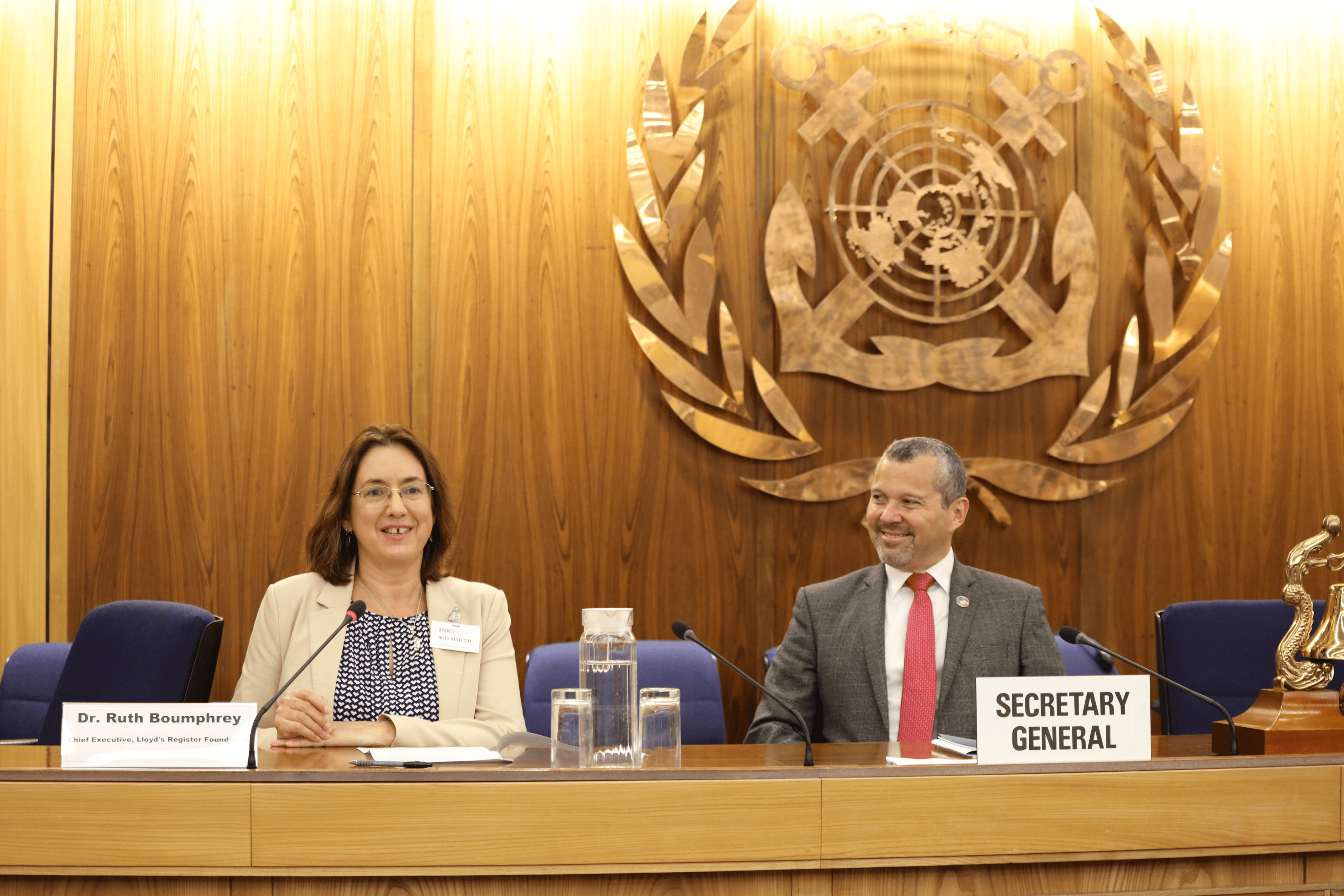
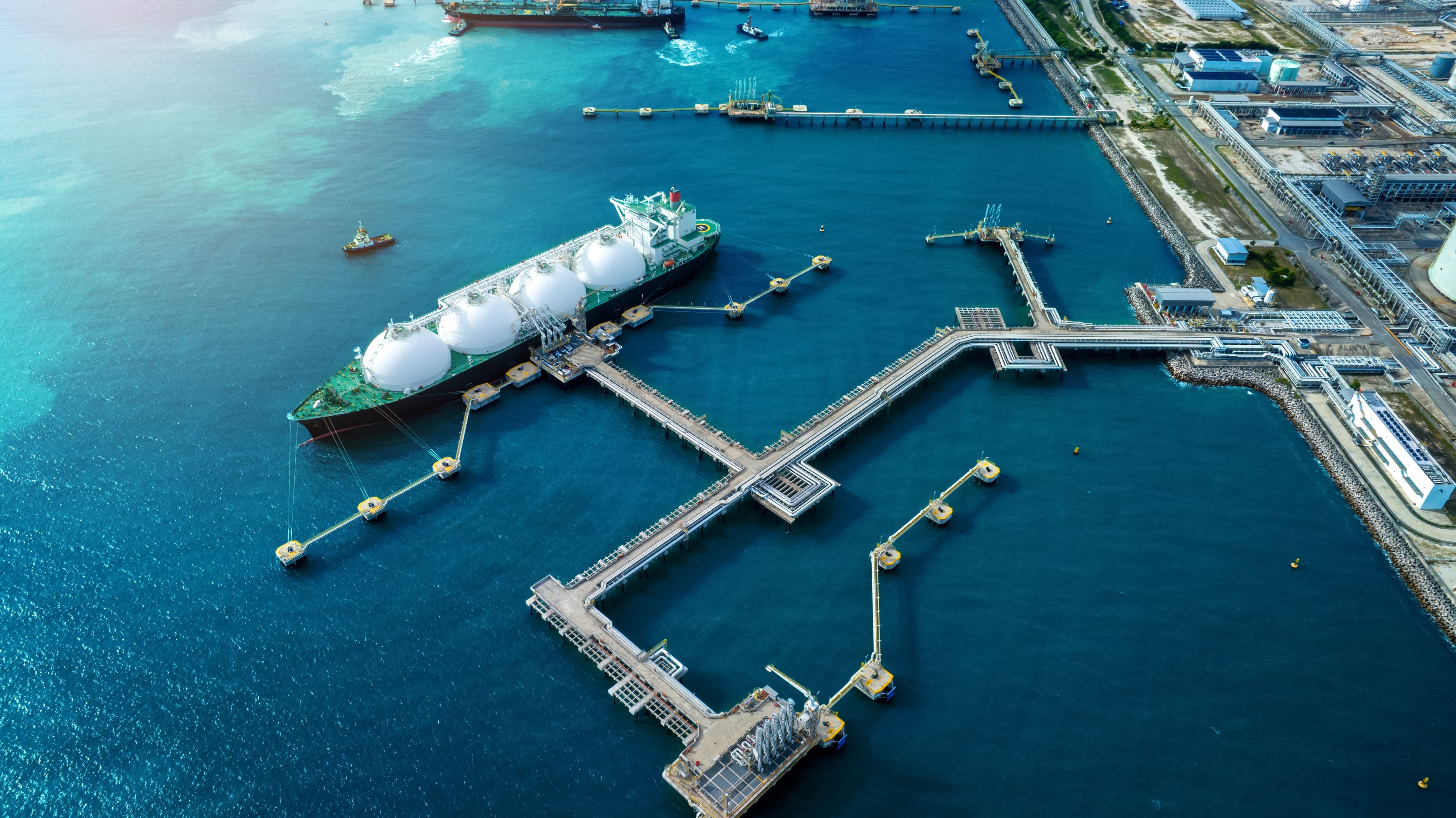
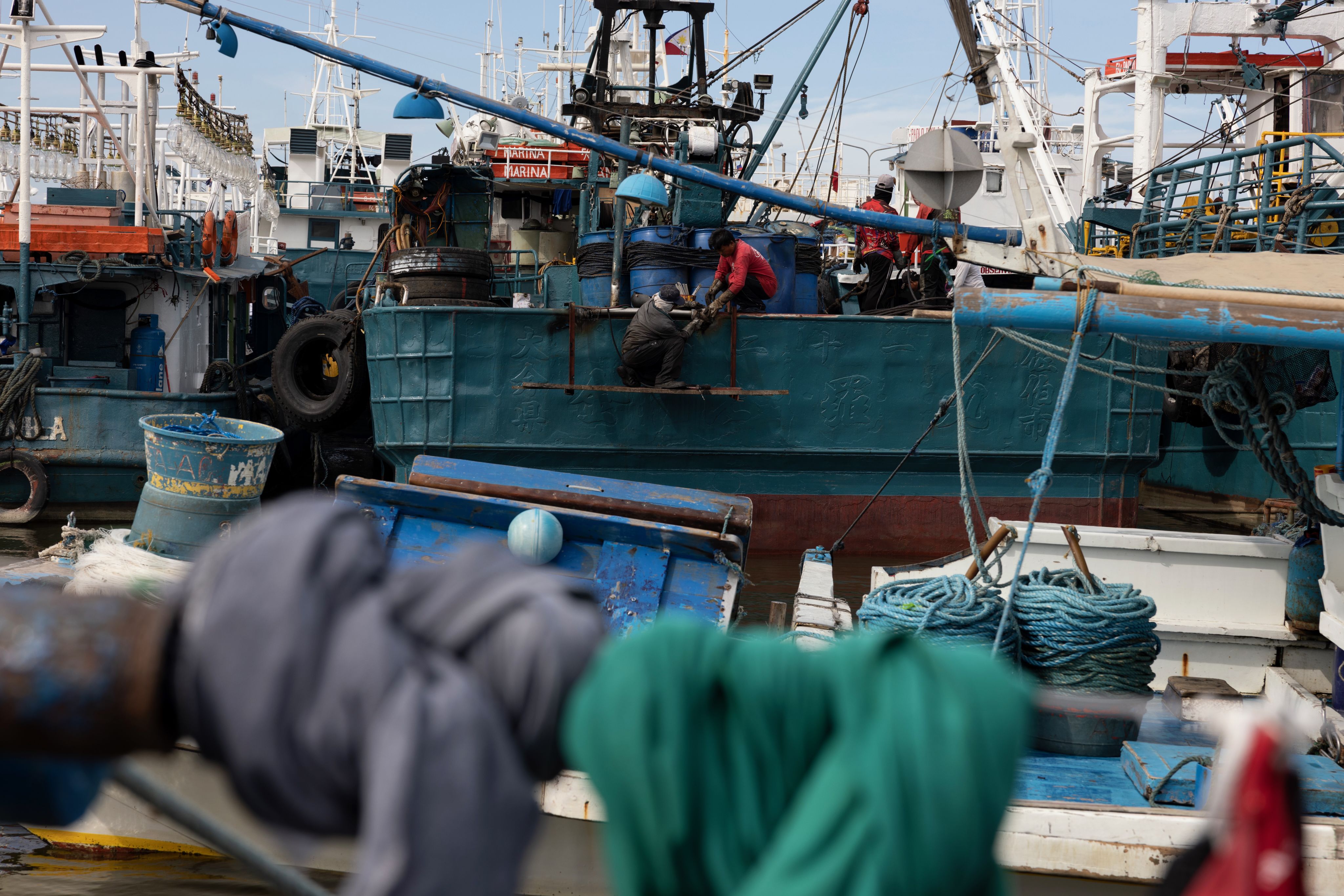
Safer, Sustainable Infrastructure
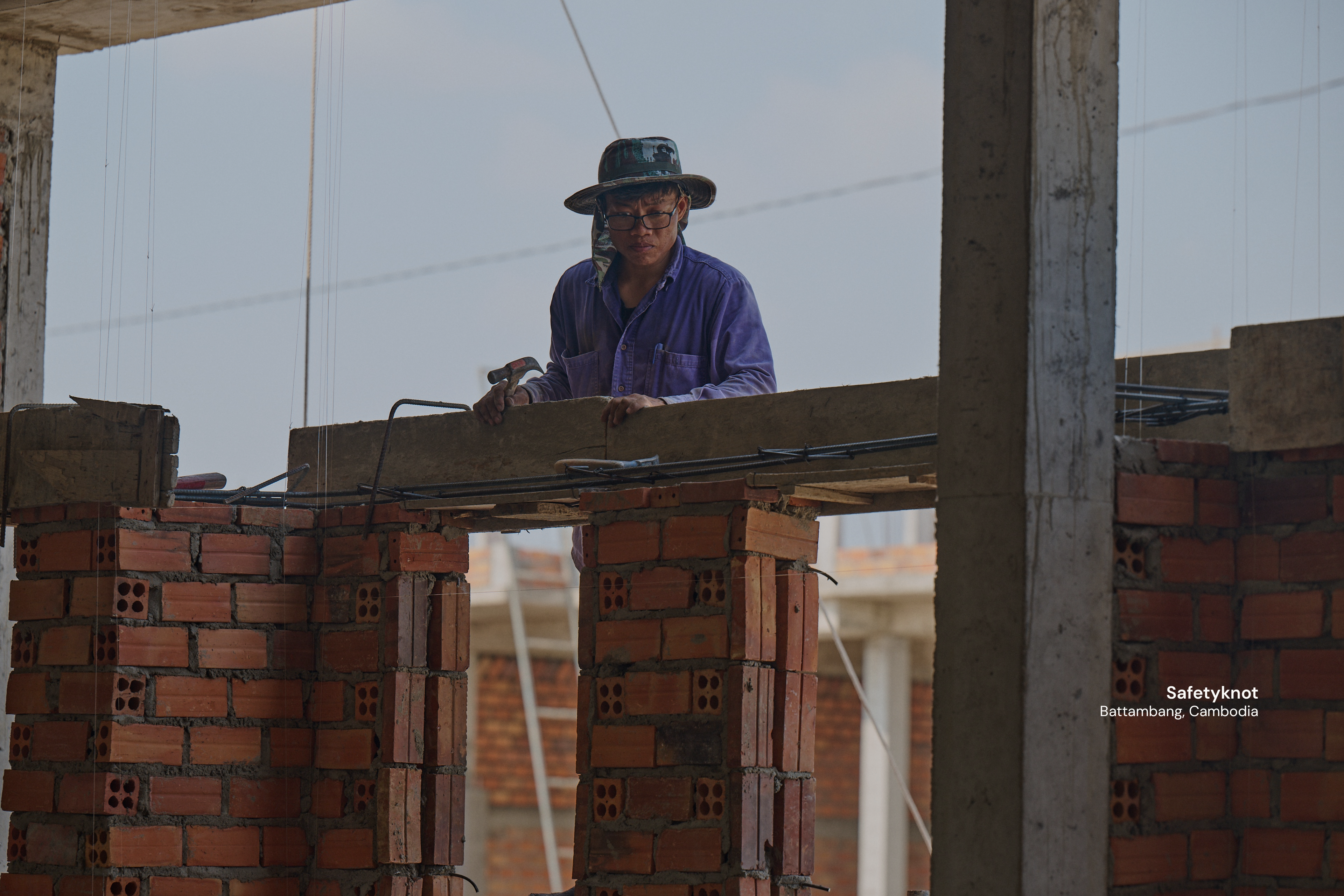
1. Centre for Assuring Autonomy influences domestic and international policymaking on safe AI and autonomous systems
Professor John McDermid OBE FREng, Director of the Centre for Assuring Autonomy, was a senior advisor assisting in the production of the ‘International Scientific Report on the Safety of Advanced AI’ – a landmark government report that has built a shared, evidence-based understanding of the opportunities and risks posed by advances in AI.
Recommendations from this report are informing the UK Government’s approach to policymaking and governance around AI development. John’s contributions to the report helped shape the second AI Safety Summit, which took place in Seoul, Korea in May 2024, and John is currently acting as a Senior Advisor for the 2025 Summit in France.
This highlights the Centre for Assuring Autonomy’s increasingly trusted voice on the safe adoption and through-life operation of artificial intelligence and autonomous systems, with Centre researchers appearing in The Guardian, The Times, and BBC in the past 12 months.
The Centre for Assuring Autonomy is a partnership between Lloyd’s Register Foundation and the University of York.
2. Engineering X shows global leadership in waste and decommissioning sector
A global consortium led by Engineering X’s Safer End of Engineered Life programme was awarded $1.3 million from the United Nations Environment Programme’s Climate and Clean Air Coalition (CCAC).
In partnership with the International Solid Waste Association (ISWA), Institute for Global Environmental Strategies (IGES), Practical Action, and UN Habitat, the project is developing roadmaps to end the open burning of solid waste in Africa, Asia, Latin America, and the Caribbean. In particular, providing practical ways to reduce the presence of highly toxic, carcinogenic climate pollutants.
Engineering X is a growing collaboration founded by Lloyd’s Register Foundation and the Royal Academy of Engineering. Our joint commitment to ending this unsafe waste practices was further consolidated by co-developing a World Risk Poll module on the topic, “A World of Waste: Risks and opportunities in household waste management”.
3. Discovering Safety and Safetytech Accelerator use digital technology to accelerate health and safety compliance in industry
Discovering Safety, a programme led by Great Britain’s health and safety regulator: the Health and Safety Executive, and Safetytech Accelerator, have been collaborating since 2024 on the ‘Smarter Regulation Sandbox’.
The sandbox has brought together five technology companies, the regulator and major industrial contractors to participate in the six-month initiative, funded by the Government Office of Technology Transfer, to develop and pilot digital products to accelerate productivity and safety compliance in the construction industry.
The sandbox is demonstrating how access to digital and machine-readable regulations can lead to reduced regulatory burdens on industry, whilst supporting innovators to bring emerging digital products to market.
4. MX3D’s bridge wins prestigious award from The American Welding Society
MX3D’s groundbreaking 3D-printed steel bridge, funded in part by Lloyd’s Register Foundation, has been awarded the American Welding Society’s prestigious "Outstanding Development in Welded Fabrication" award, joining the ranks of iconic past winners such as the Hoover Dam, Mars Curiosity Rover, and the Panama Canal.
The Foundation-funded Data-Centric Engineering programme at The Alan Turing Institute also played an important role in the project - alongside partners at University of Cambridge, Imperial College London, and Newcastle University - unlocking insights into the steel bridge’s real-time performance using data science techniques and digital twin technology.
Since the bridge was built, MX3D has successfully introduced its technology in other demanding industries including Space, Maritime, Nuclear, and Energy.
5. Legacy Lloyd’s Register Educational Trust grant in data-centric engineering takes to market
Thirteen years ago, Adam Sobey, former Foundation-funded fellow at the University of Southampton and currently Director of the Data-Centric Engineering Programme at The Alan Turing Institute, developed an optimisation algorithm, supported with funding by the Lloyd's Register Educational Trust.
This algorithm was adapted for Voyage Optimisation and commercially taken to market as T.VOS by a company called Theyr - a UK-based maritime technology company that specialises in advanced voyage optimisation and meteorological and oceanographic data solutions. As part of T.VOS, Adam’s algorithm is now an integral solution to fifteen maritime digital platforms, notably LR One Ocean, with access to over 35,000 vessels worldwide.
The Data-Centric Engineering programme at The Alan Turing Institute is supported by a grant from Lloyd’s Register Foundation.
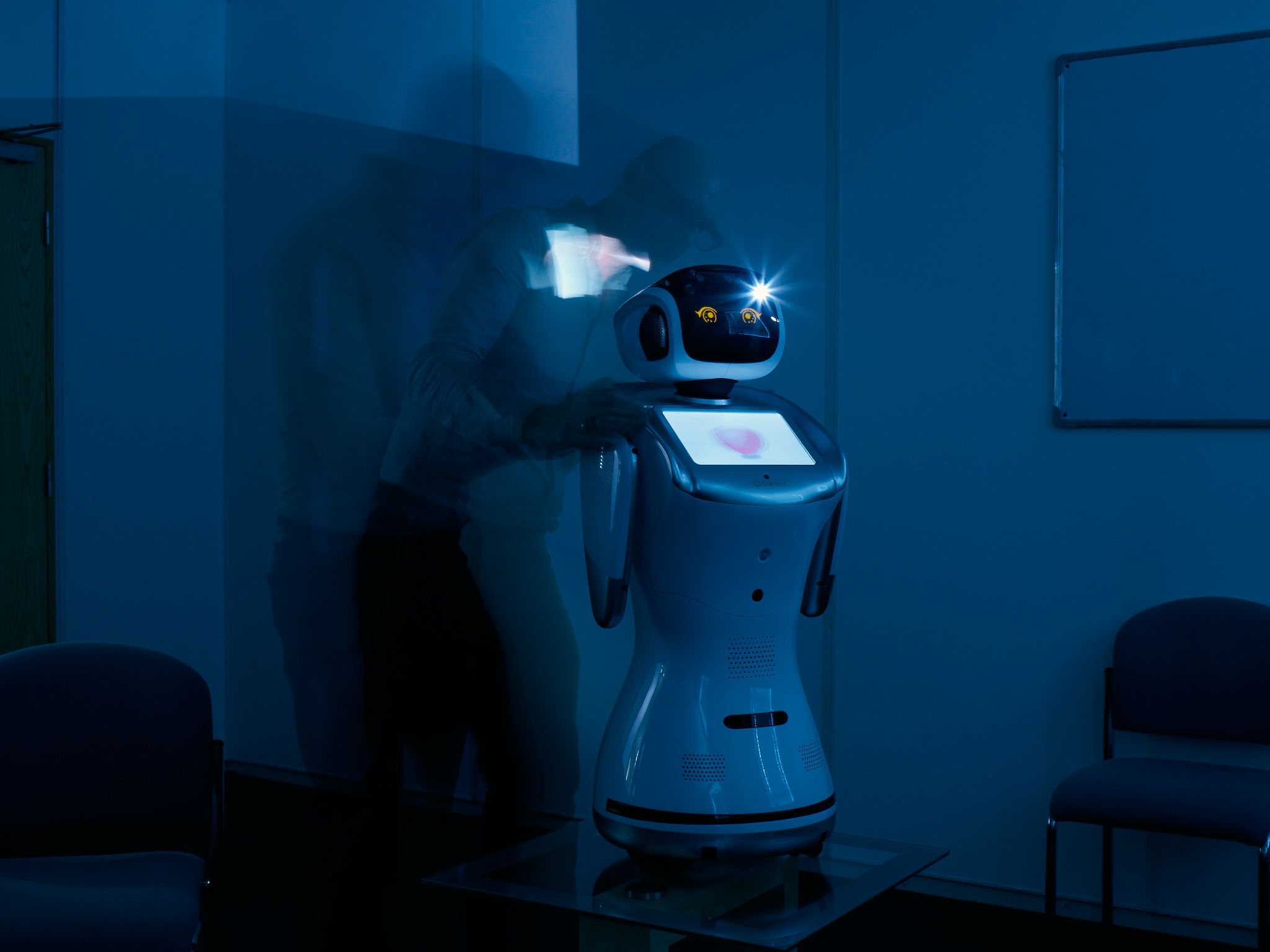
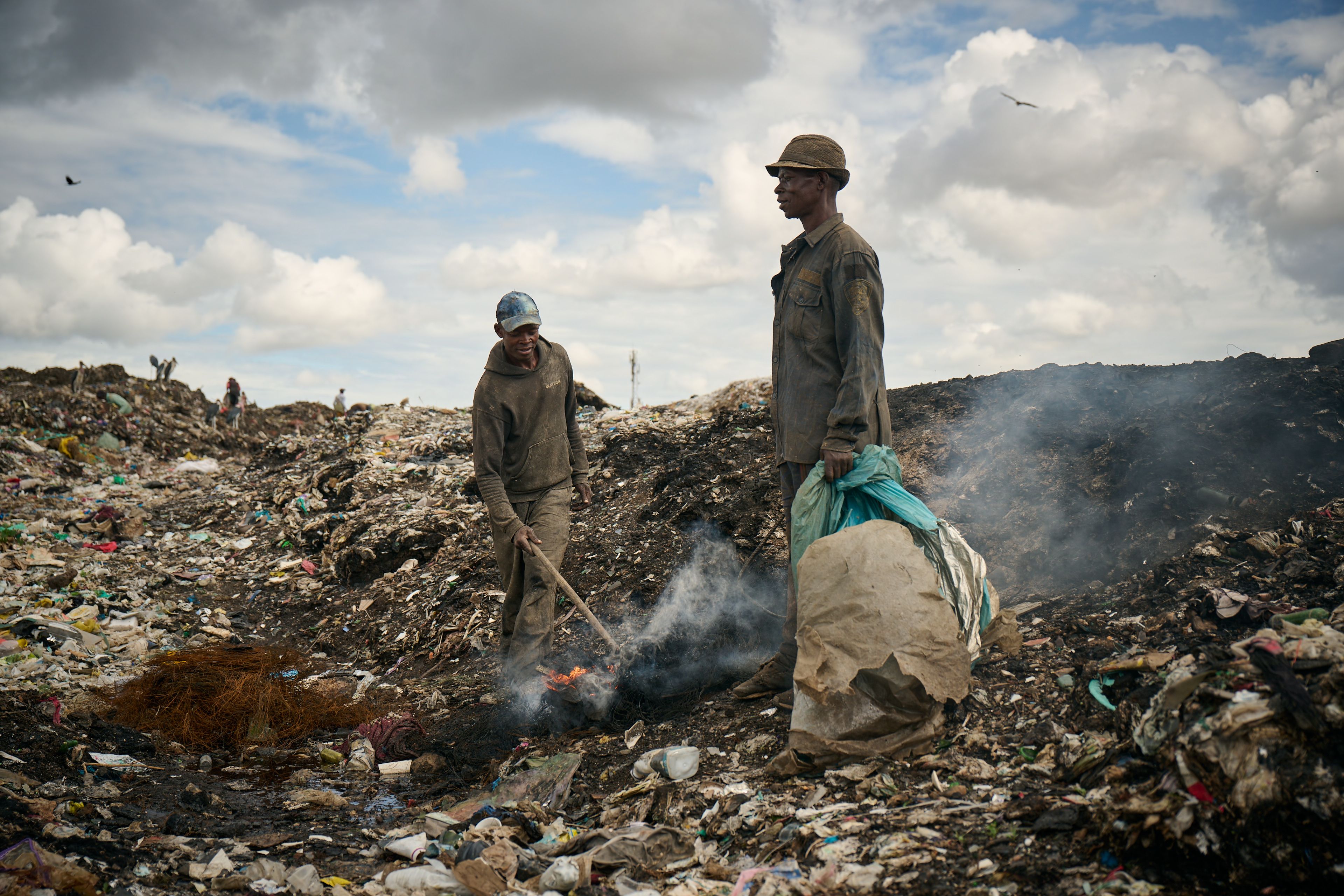
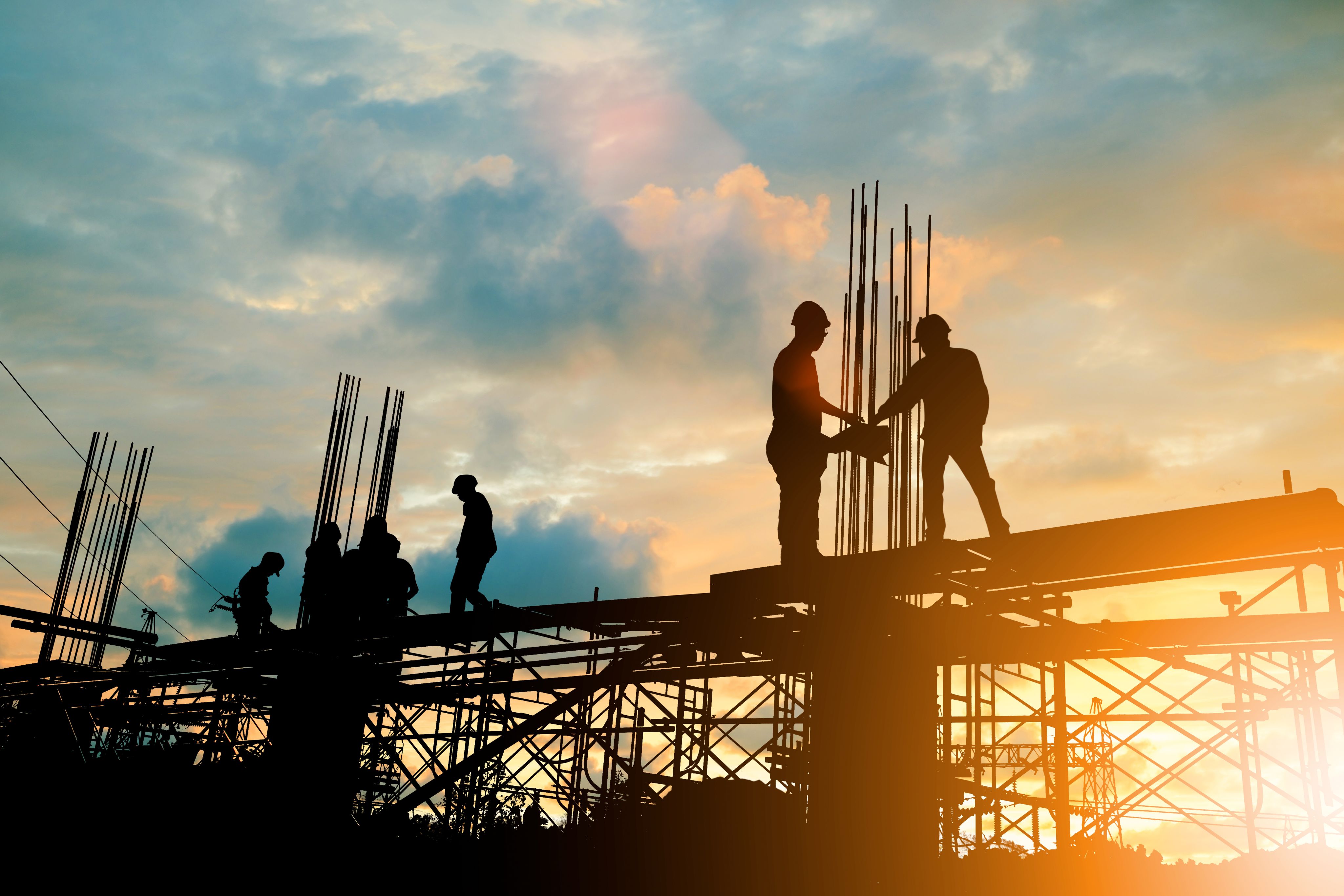
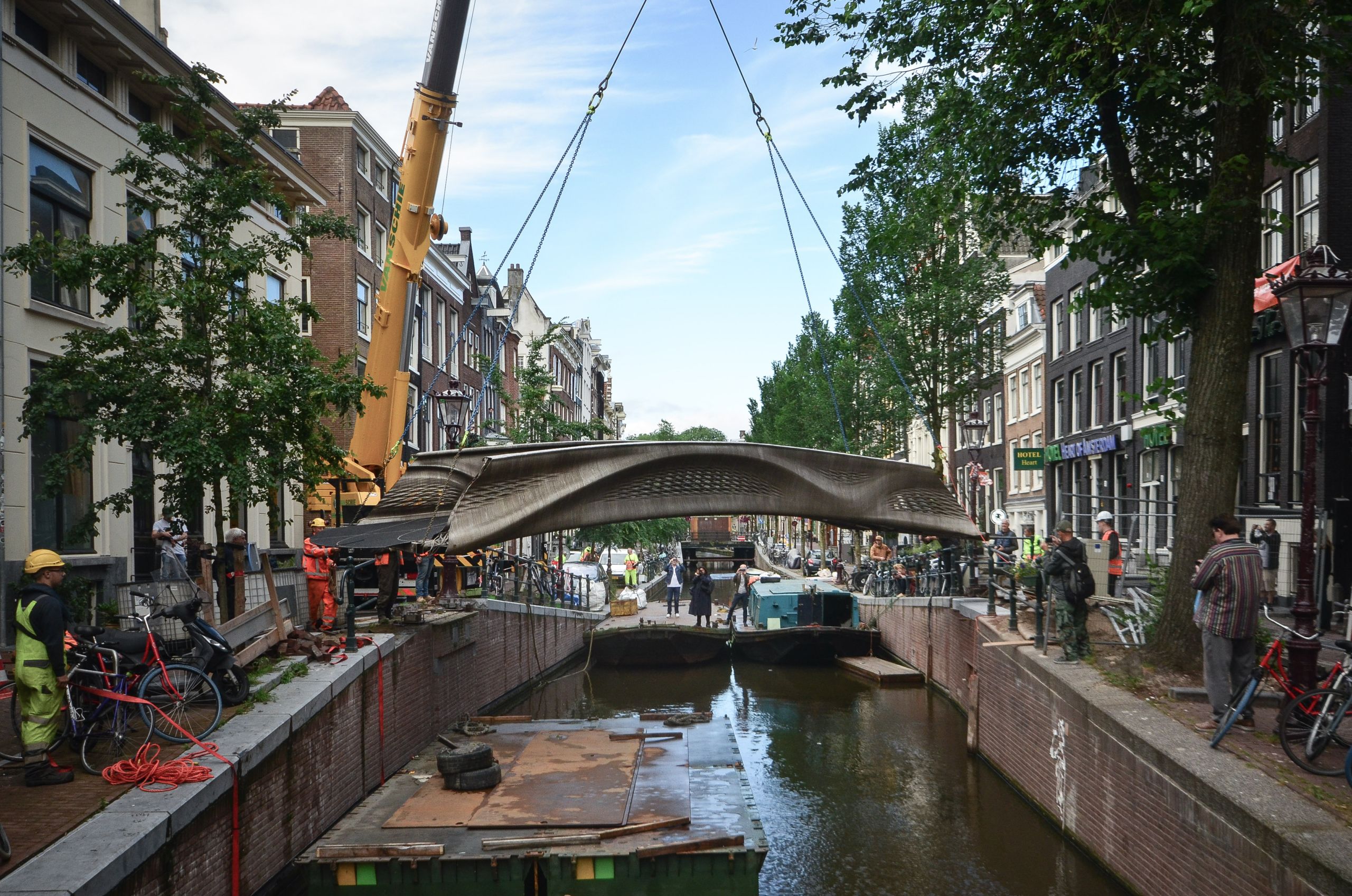

Skilled People for Safer Engineering
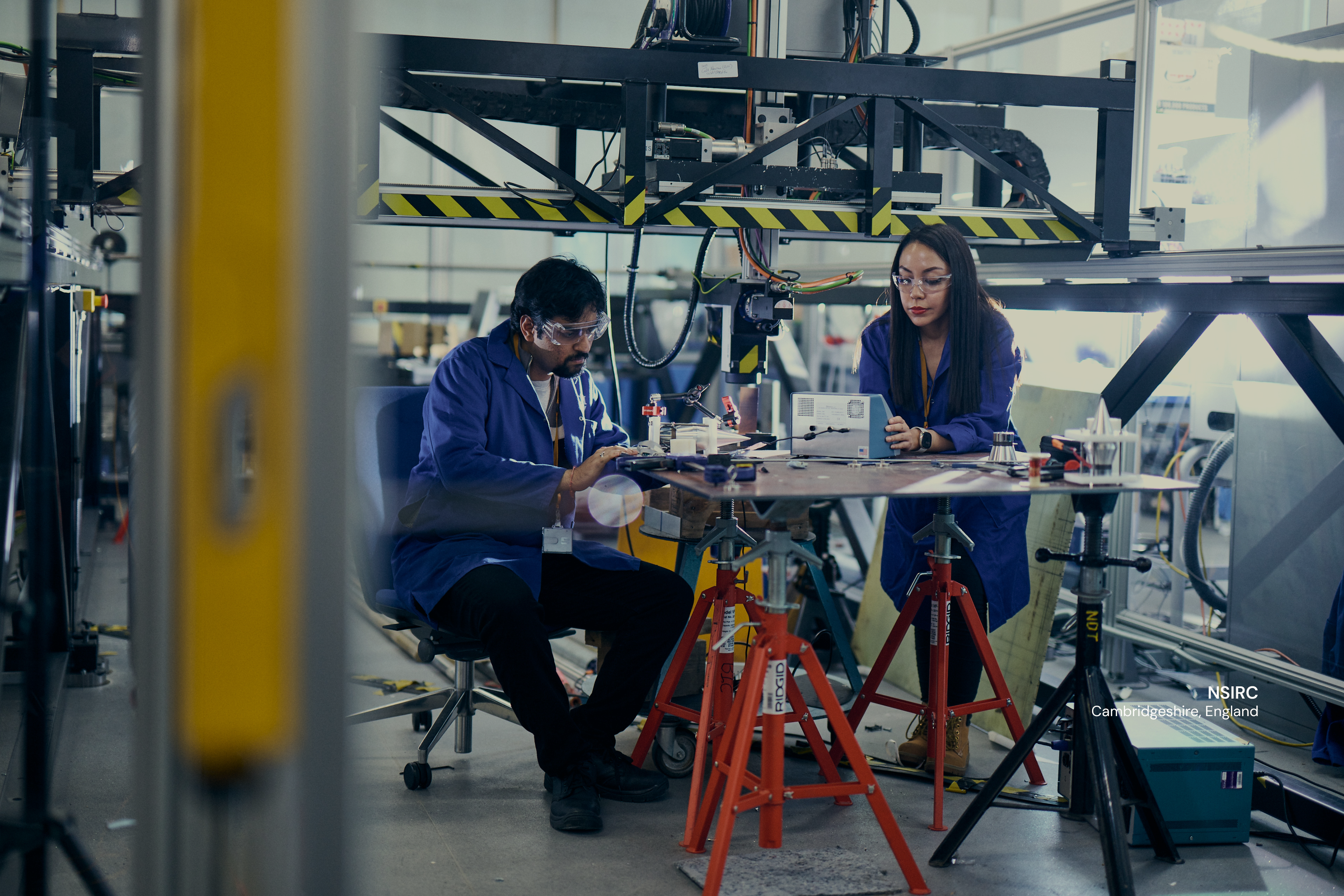
1. Over 2,500 Foundation-funded engineers trained in Southeast Asia
The second phase of the Foundation’s Southeast Asia Skills Enhancement Programme (SEASEP) reached an important milestone in 2024, training over 2,500 engineers throughout the region. This is in addition to over 4,500 engineers trained during the first phase of the programme.
This coincided with the programme expanding further into Southeast Asia, meaning the highest quality welding, non-destructive testing and occupational health and safety training is now accessible to students in Thailand, India, Indonesia, and the Philippines.
Training provided by SEASEP is helping to improve safety standards and is enhancing worker safety in response to rapid urbanisation and investment in large-scale infrastructure projects throughout Southeast Asia.
2. Our fellowship programmes help develop local maritime expertise
This year the Foundation strengthened its strategic relationship with the World Maritime University (WMU) and the International Maritime Law Institute (IMLI), expanding and creating new opportunities to develop maritime expertise, particularly in lower and middle-income countries, and addressing new safety challenges including those associated with decarbonisation and digitalisation.
The first Foundation-funded fellows to WMU, Mithilesh Kumar (India) and Faith Maraga (Kenya), graduated this year with an MSc in Maritime Affairs. Mithilesh and Faith have returned to their home countries with new knowledge and expertise that can help build global capacity and promote safe and sustainable development in the maritime industry. The next two fellows, Elaiza Perez (Philippines) and Danisa Buakah (Ghana), joined WMU in September.
In June, we extended our long-term partnership with IMLI through a £1,000,000 five-year grant. The first of this new cohort of fellows, Mr. Rene Alberto Ruescas Mejia (Bolivia), Ms. Jacqueline Agyemang-Gyau (Ghana) and Ms. Aina Charity Shalonga Keshongo (Namibia) joined the institute in September. Their studies will help enhance local legal expertise, and ensure the implementation and enforcement of maritime legislation that keeps people safe at sea.
3. METAVASEA workshops drive a people-centred transition towards a decarbonised shipping industry
This year, over 150 port workers, seafarers and shipping company employees attended HELMEPA’s first pilot workshops on “Enhanced Safety Culture for Maritime Decarbonization” at Piraeus Port Authority, "Environmental Leadership" at Athina Maritime Learning & Development Centre and the webinar “Emerging Technologies, Automation, Digital Awareness & Cybersecurity in Shipping”.
These activities are part of the METAVASEA project, a multi-stakeholder partnership, including the World Maritime University, and coordinated by HELMEPA, which aims to advance a people-centred transition for maritime decarbonisation in the East Mediterranean by training and upskilling more than 1,500 seafarers, port workers, and shipping professionals in new fuels, digital transition, marine environmental awareness, and soft skills. Importantly, this project is directly connected with the Foundation's related work in maritime decarbonisation and a maritime just transition.
4. Maritime Just Transition Taskforce and Decarbonisation Hub make recommendations to equip seafarers for transition to zero and near zero emission fuels.
In November, The Maritime Just Transition Task Force released a report co-funded by Lloyd’s Register Foundation highlighting new training needs for seafarers to ensure safe decarbonisation of shipping. Developed in collaboration with Lloyd's Register’s Maritime Decarbonisation Hub and United Nations Global Compact Ocean Stewardship Coalition, the report is a high-level summary of the consultations made during 12 hybrid risk assessment workshops and involvement of over 100 stakeholders, which took place throughout 2024. This marks a milestone in the development of a baseline training framework to equip seafarers with the skills required to safely operate ships powered by ammonia, methanol, and hydrogen as marine fuels.
This report coincided with the Lloyd’s Register Maritime Decarbonisation Hub becoming a signatory of the Call to Action for achieving a just transition for Africa's seafarers, launched at COP29. The call to action supported by 19 diverse state and non-state actors urges global attention to 16 critical actions including investment in skills, promoting gender diversity and ensuring global labour standards keep pace with the transition to zero-carbon fuels. This was led by the High-Level Climate Champions Africa Maritime Associate, Maria Ogbugo, in collaboration with the International Transport Workers' Federation (ITF), South African International Maritime Institute (SAIMI) and the Regional Maritime University (RMU). .
5. Catalysing innovative thinking amongst our small grant holders
In May, we brought together our cohort of small grant holders for a series of workshops to help catalyse innovative thinking and produce new, ambitious ideas to advance our charitable mission.
The pilot was a huge success, with three collaborative grants being awarded. Projects include a research-based grant to the University of Wolverhampton, Delft University in the Netherlands, and Moi University in Kenya exploring the risks associated with the digital transition in maritime port energy infrastructure, and a joint initiative between the International Maritime Rescue Federation (IMRF) and Climate Adaptation Works Ltd, developing a framework to evaluate search and rescue readiness for climate change.
This series of workshops was part of Lloyd’s Register Foundation small grants programme, providing up to £10,000 for organisations to initiate or build partnerships and test out ideas through pilot studies, projects and activities across the Foundation’s strategic priority areas.
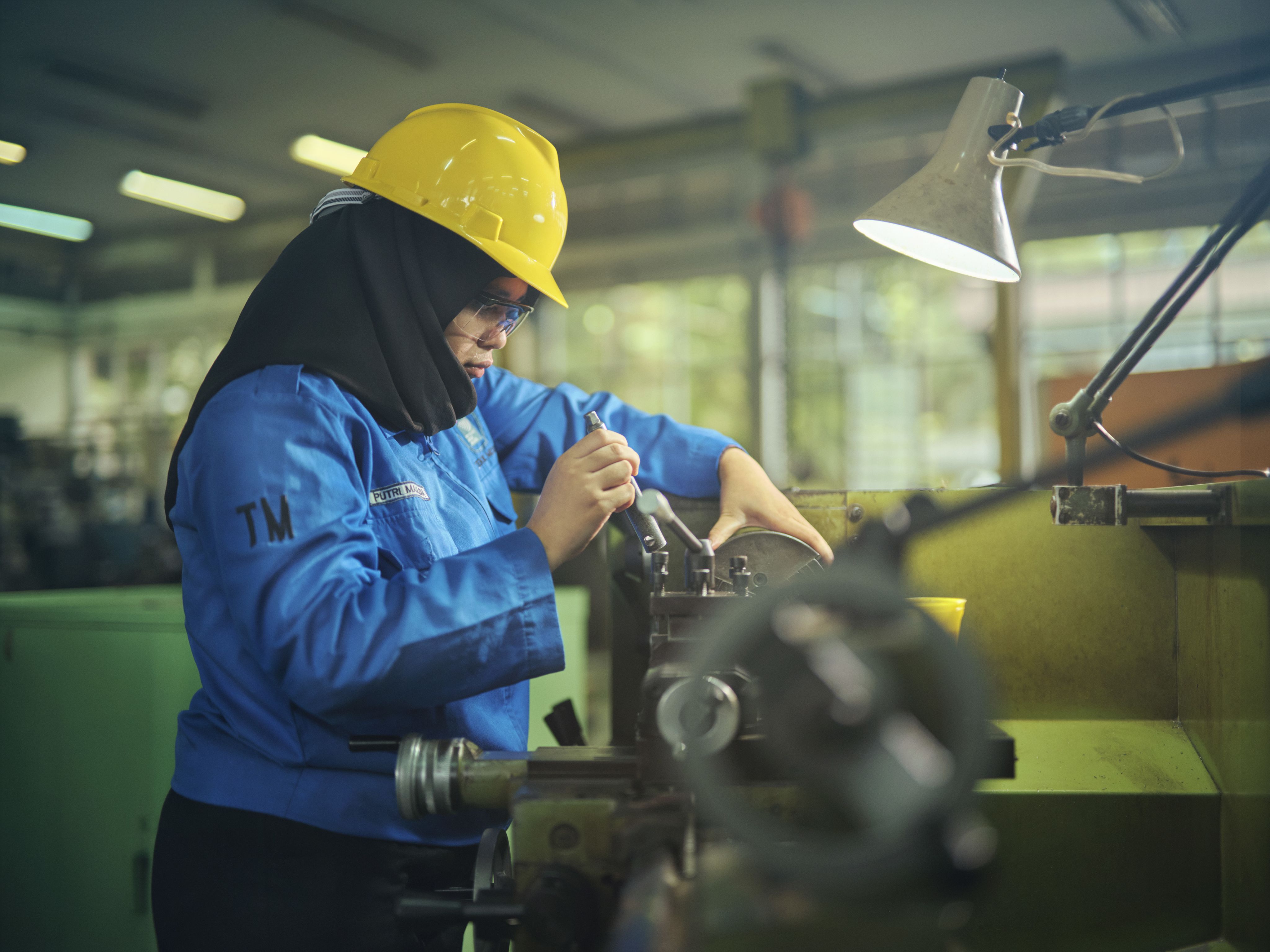
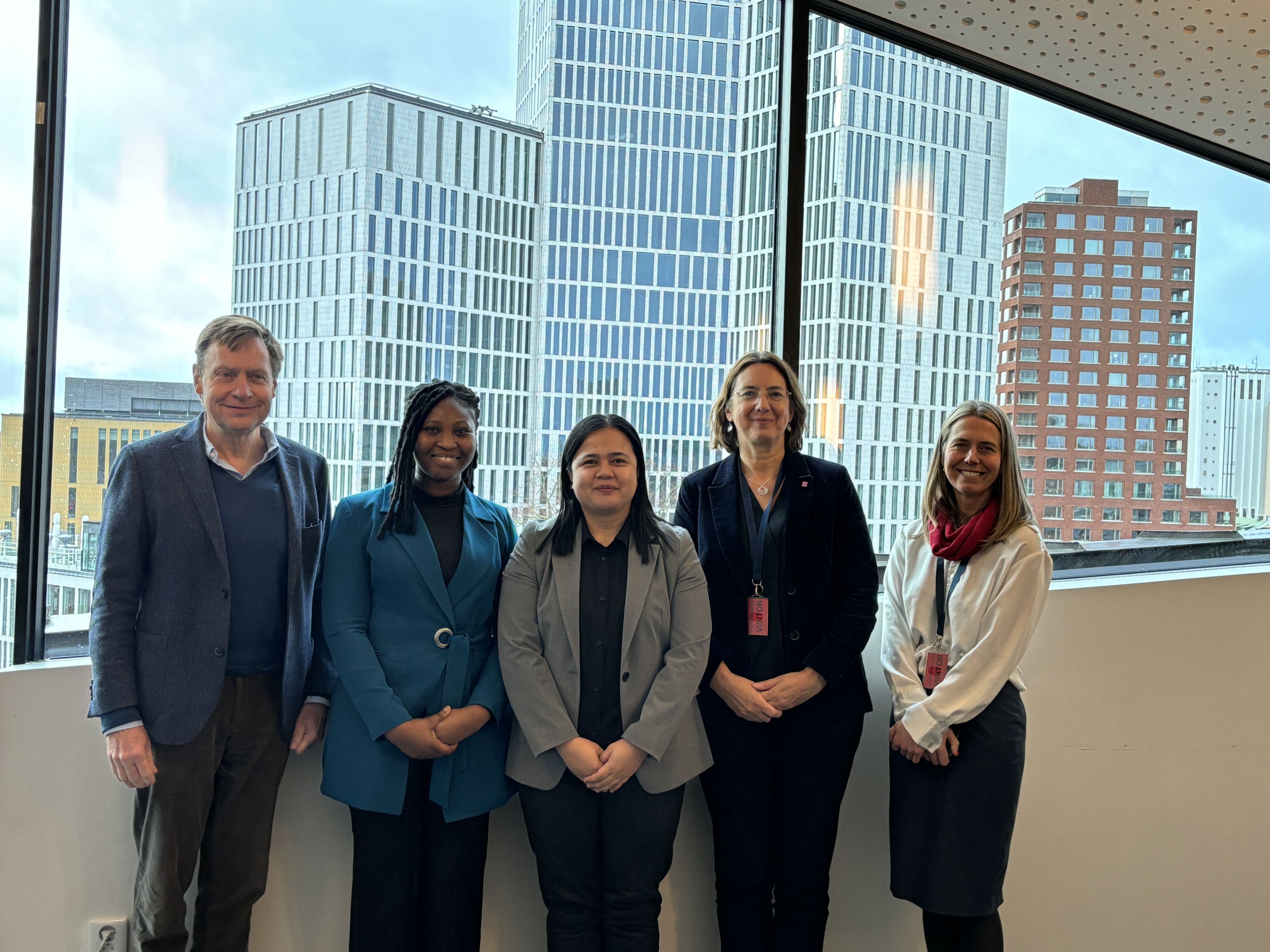
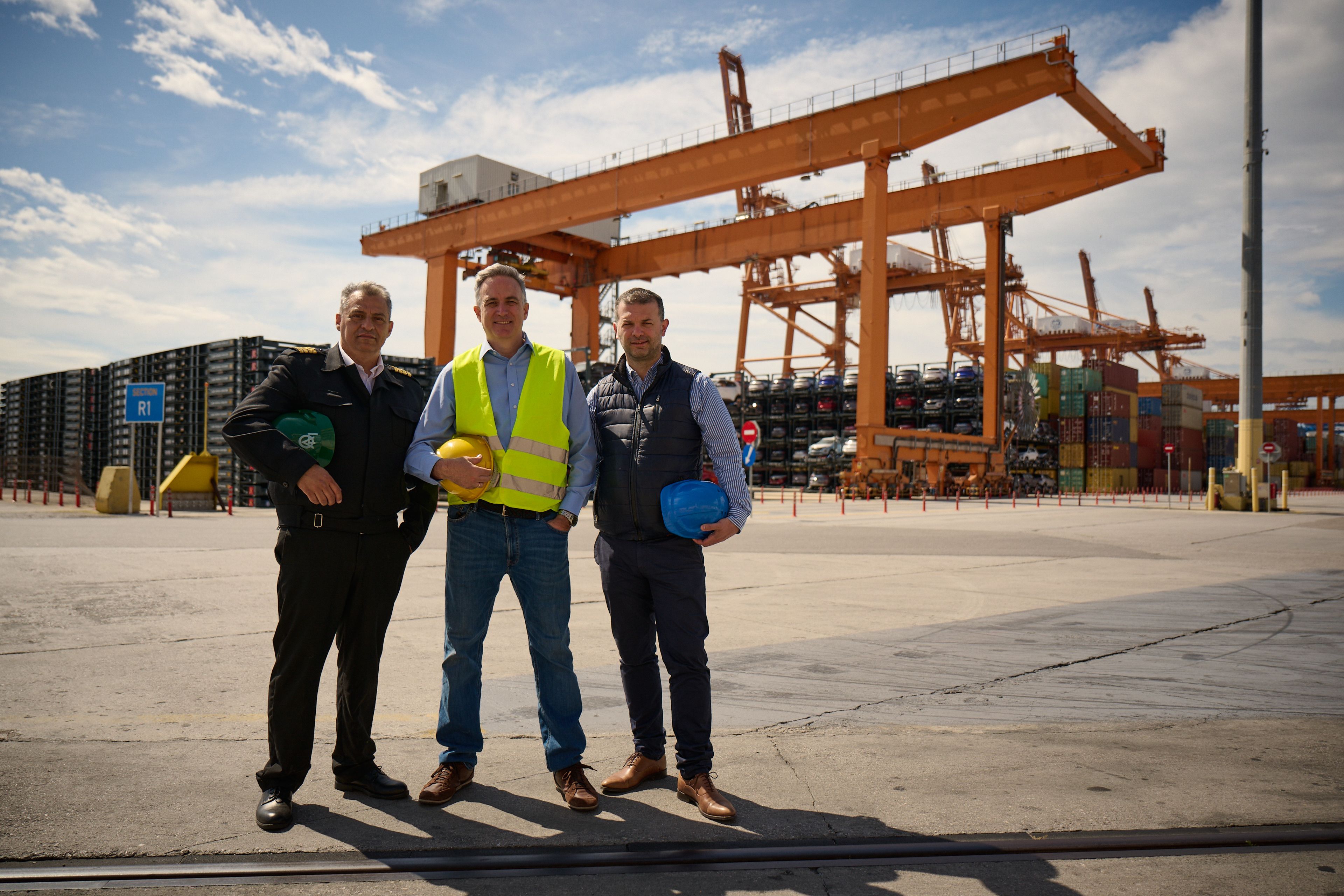
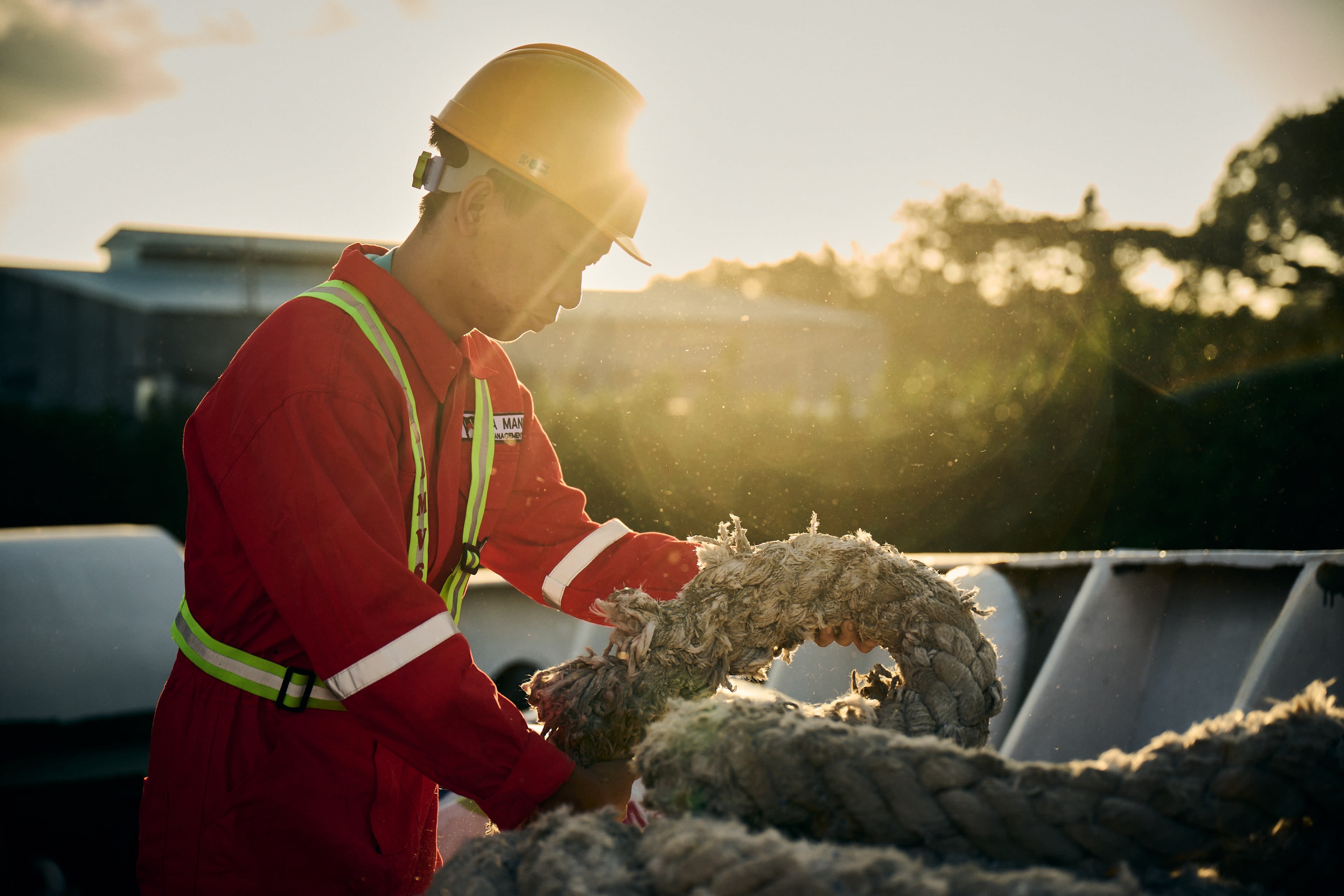
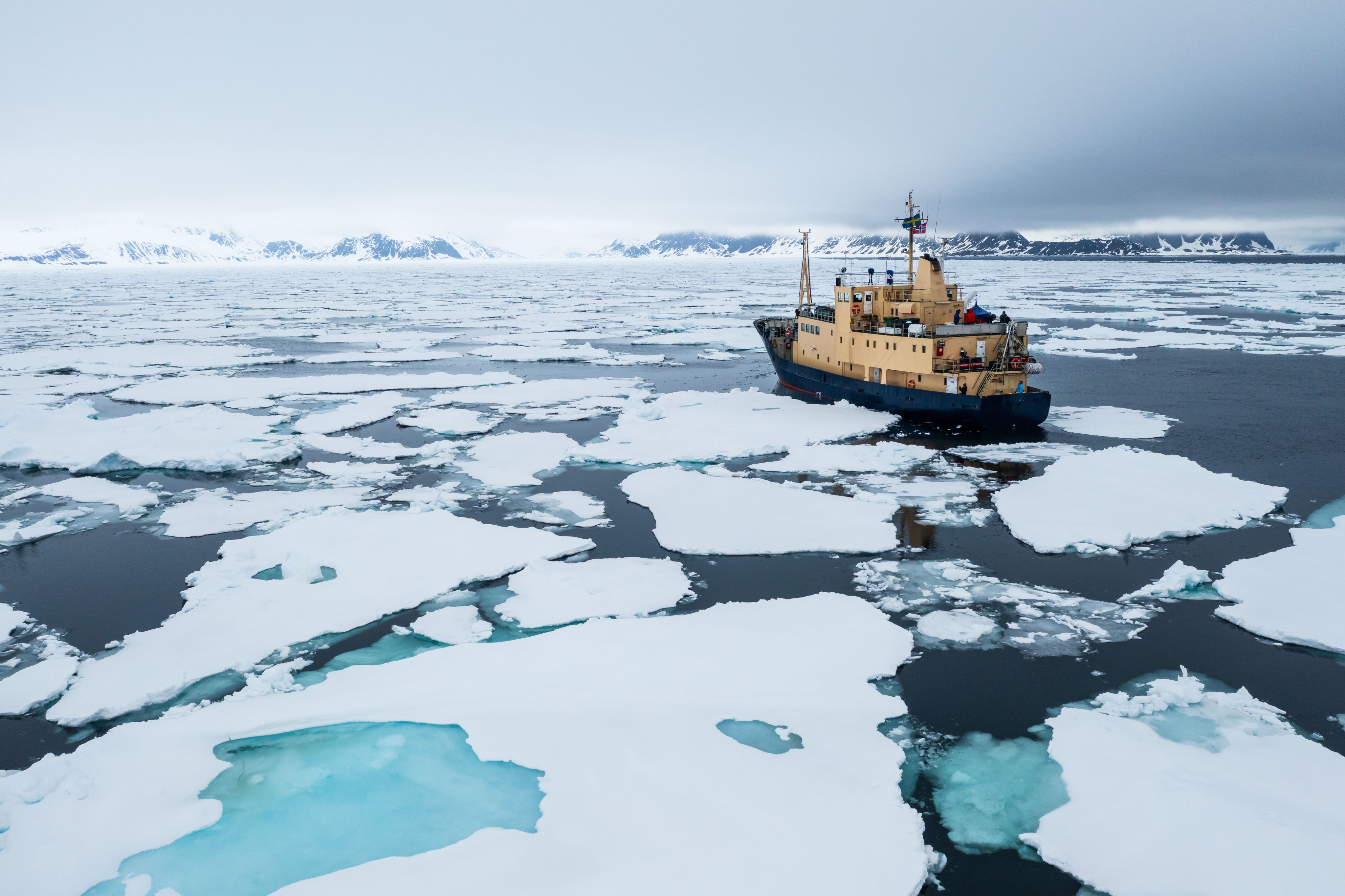
Evidence and Insight
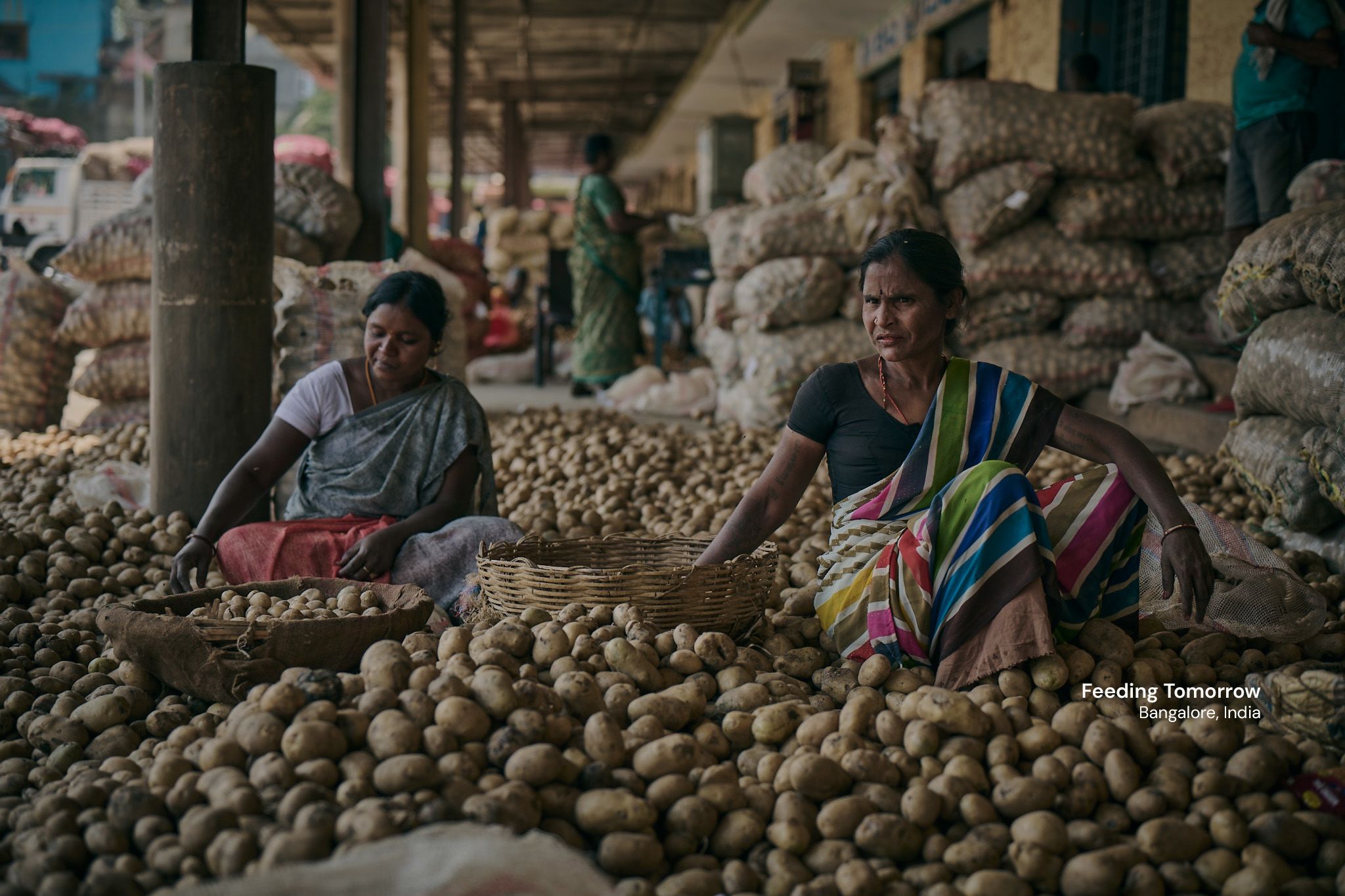
1. Informing disaster resilience planning and interventions
The third edition of the Lloyd’s Register Foundation World Risk Poll – the first and only global study of worry about, and harm from, risks to people’s safety – was published in 2024, in a series of four themed reports.
This included a report on disaster resilience, included in the Poll for a second consecutive time. We already knew from stakeholder feedback that the Poll’s resilience data had great potential value for informing resilience planning and interventions, and this value started to be evidenced more tangibly this year.
The data was featured by the UN Development Programme in the 2023-24 edition of their influential Human Development Report to highlight gender inequalities in agency in the face of disasters. It was prominently shared by the United Nations Office for Disaster Risk Reduction to benchmark progress on their Early Warnings for All Initiative. And it was used by international development NGOs, including CARE International and Caritas Venezuela, to inform policy papers and more localised resilience assessments.
2. Driving action to tackle violence and harassment at work
Meanwhile, the World Risk Poll continued to drive impact on other safety issues featured in previous editions. The Poll report on violence and harassment at work, published in 2023, had already achieved major success that year, being cited in the decision of the Philippines Senate to ratify International Labour Organisation (ILO) Convention 190 as a fundamental first step to tackling the issue.
This was followed, in 2024, by the International Chamber of Shipping being influenced by the Poll data to create a new set of industry principles to combat harassment and bullying in the sector. And in October, the report and its follow-up documentary were used as teaching resources on a course run by the ILO’s International Training Centre for government and industry representatives from around the world, aimed at giving them the knowledge and tools to end violence and harassment in their own countries and sectors.
These and other impacts were recognised at the 2024 MRS Awards, where the World Risk Poll won the International Research category.
3. Building the evidence base on safety at work
Lloyd’s Register Foundation’s research in the occupational safety and health (OSH) space became more influential in 2024, as evidenced at the People Sustainability Global Summit.
This event in London in December saw two of the Foundation’s underpinning OSH reports presented, and ways to put their principles and recommendations workshopped with world-leading OSH professionals and corporate representatives from around the world – not by the Foundation itself, but proactively and enthusiastically by our engaged OSH partners.
The two reports – The New Value of Safety, produced by the National Safety Council, and a review from the York Health Economics Consortium on the role of leading indicators in OSH – are important building blocks in the evidence base on the measurement and valuation of safety at work, which we will continue to grow in 2025 with the launch of the Foundation's new Global Safety Evidence Centre.
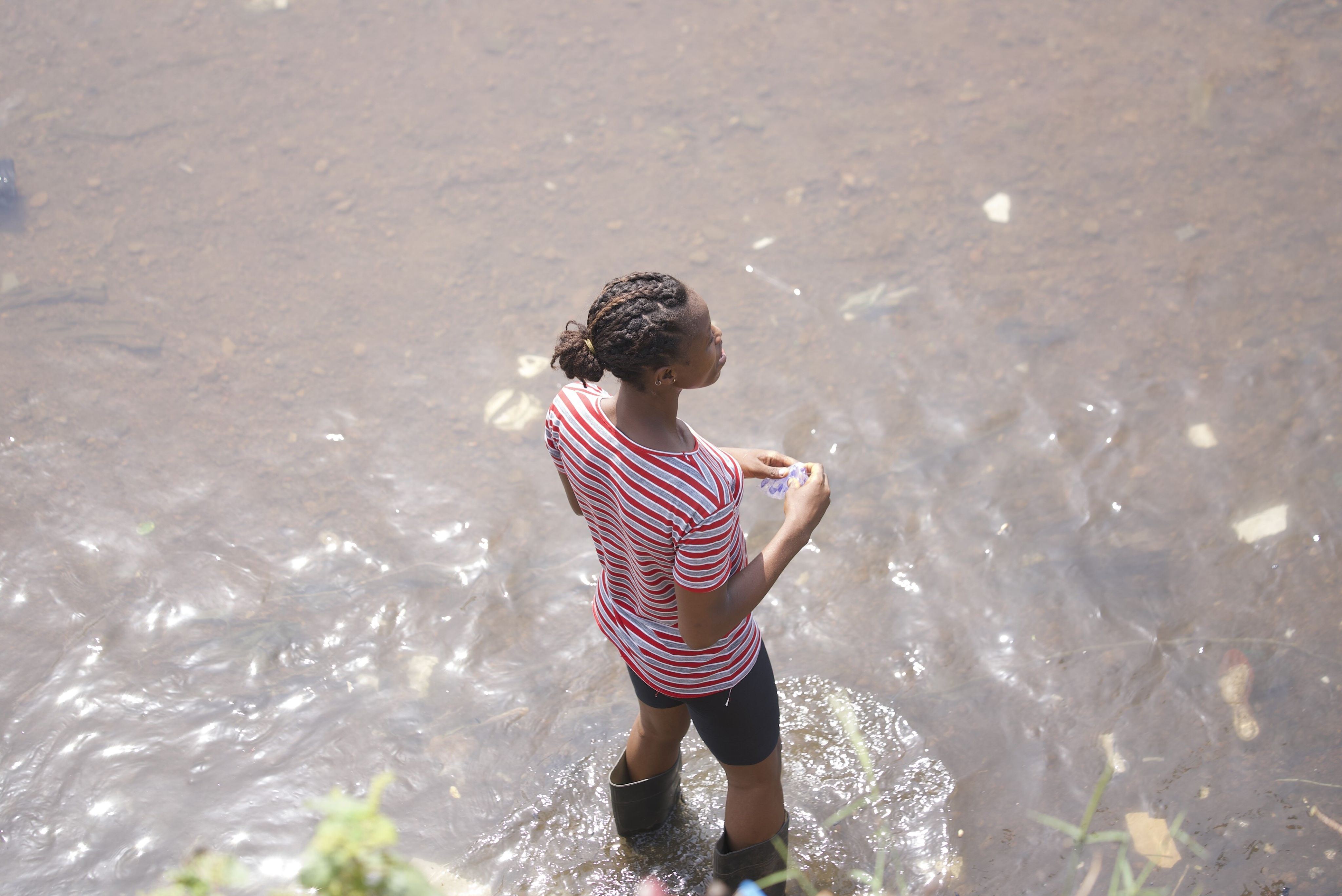
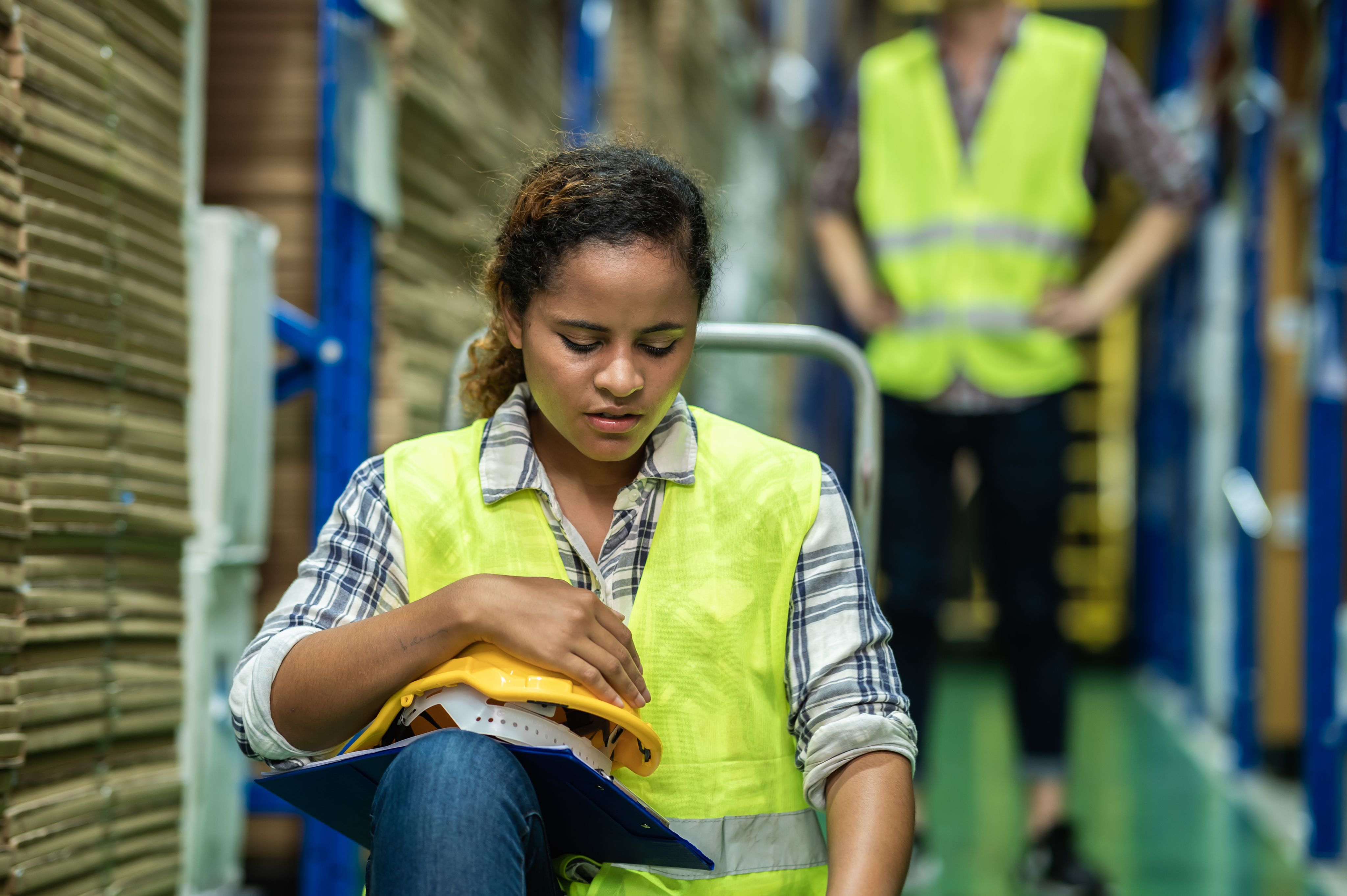
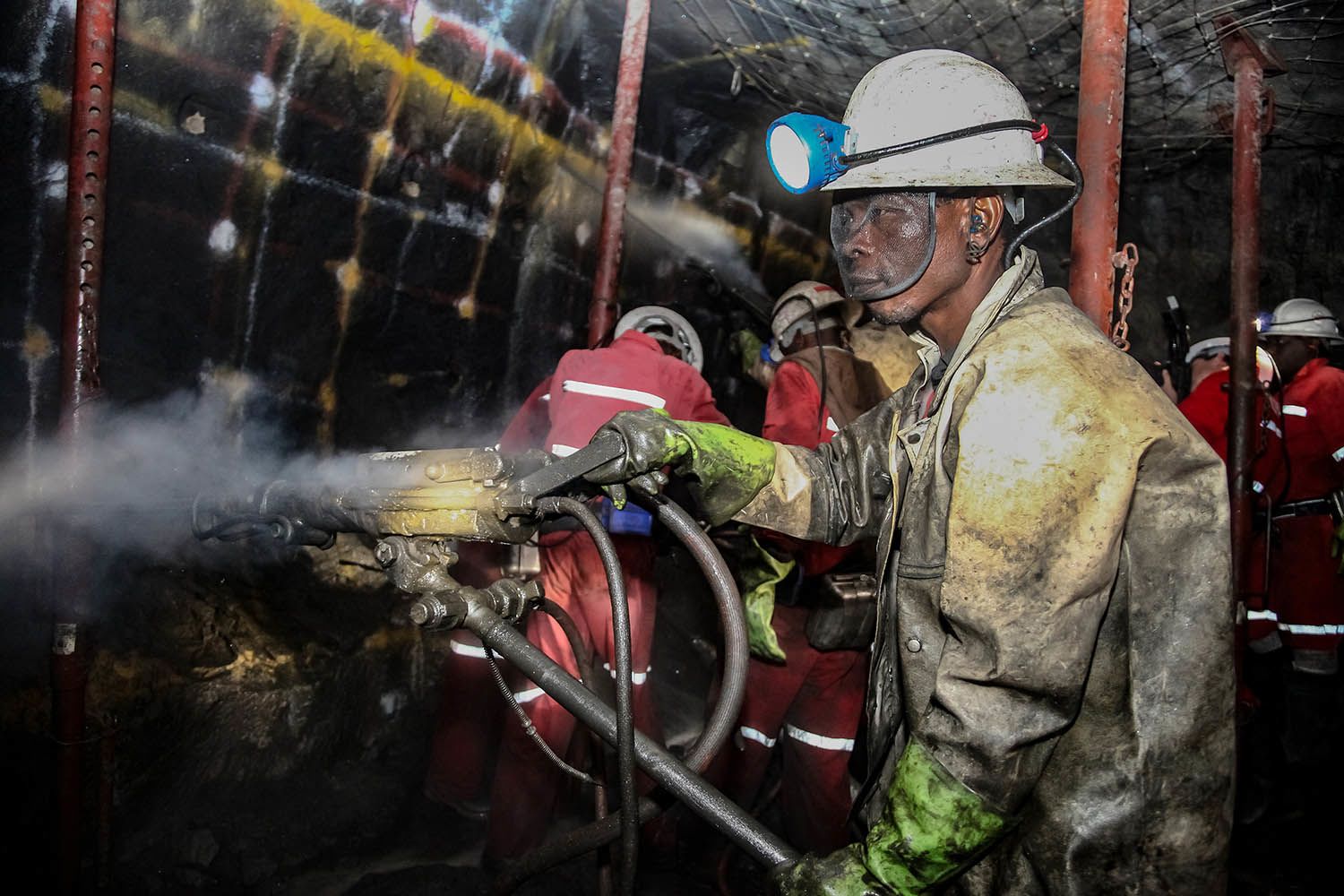
Heritage
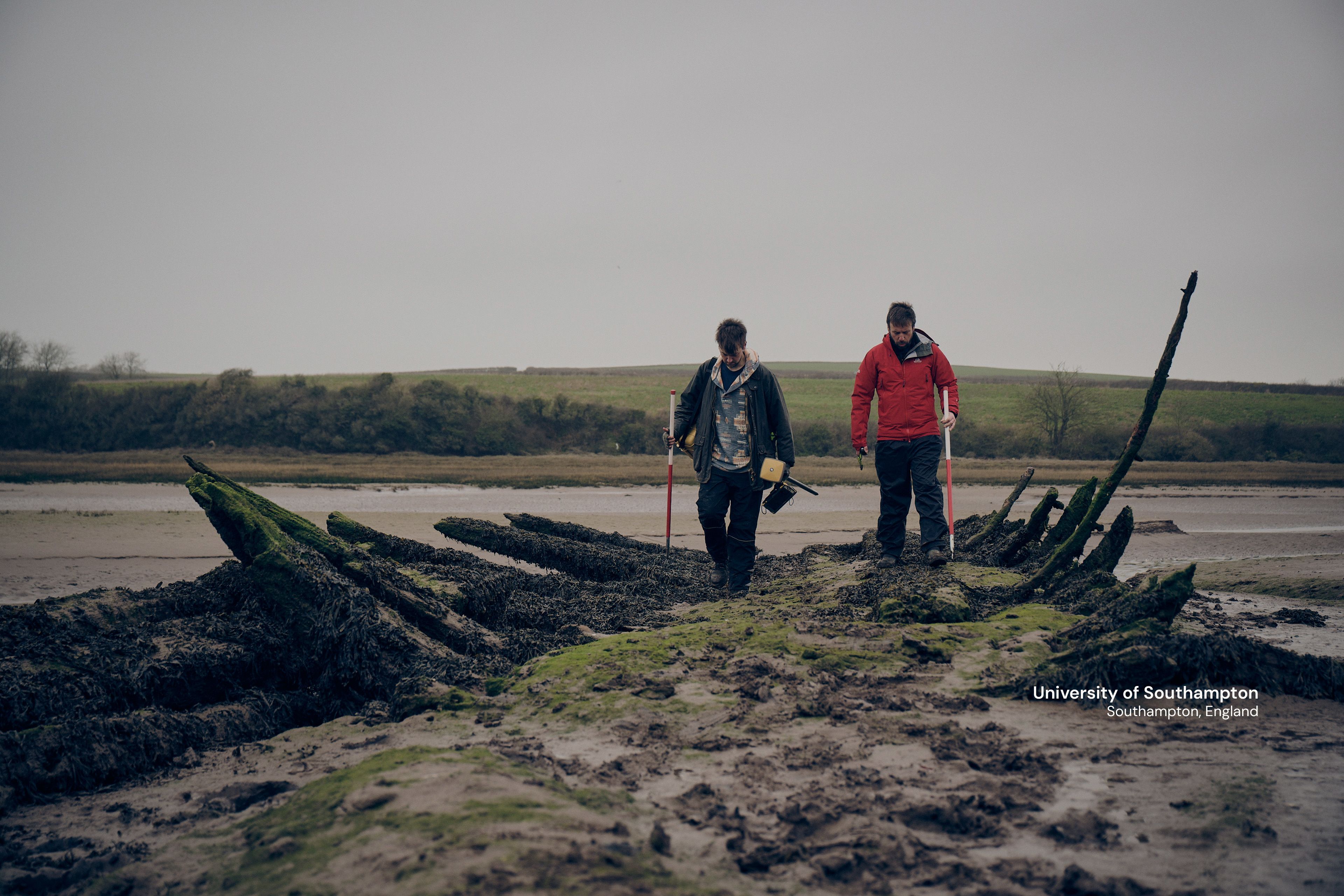
1. Building a coalition to clean up potentially polluting wrecks
Project Tangaroa – the Lloyd’s Register Foundation-funded coalition to tackle the ticking timebomb of thousands of potentially polluting shipwrecks degrading at the bottom of the world’s oceans – gathered increasing momentum throughout 2024.
This year saw us convene two international workshops, bringing together over 80 expert stakeholders to discuss how to tackle the problem, as well as the publication of a Foundation-supported book which provides a crucial touchstone resource on the issue.
This work has already attracted support from key international stakeholders including UNESCO, who backed the project at the 2024 meeting of the Scientific and Technical Advisory Body of the Convention on the Protection of Underwater Cultural Heritage.
Having pushed potentially polluting wrecks firmly up the international maritime agenda and convened a large global network of supportive partners, Project Tangaroa will continue its work in 2025 towards an agreed global framework for cleaning them up.
2. Growing recognition of the role of women in maritime
In 2024, a trilogy of Lloyd’s Register Foundation-supported exhibitions drove a growing public appreciation of the historical and contemporary role of women in the maritime sector.
Collectively, Historic England’s Women in Shipbuilding, the National Maritime Museum’s Women of the RNLI, and the Foundation’s own SHE_SEES exhibition drew more than 111,000 visitors, as they were hosted at venues across the UK, from Portsmouth to Newcastle. The on-the-ground footfall was matched by media interest, with SHE_SEES appearing on BBC TV and on the BBC News website.
SHE_SEES will continue its residency at Portsmouth Historic Quarter until August 2025. Meanwhile, the Rewriting Women into Maritime History programme, of which the exhibition forms a part, will launch its international phase at the start of the year, aiming to replicate its impact on a global scale.
3. We showcased Lloyd’s Register’s role in the history of maritime safety
In July, our archivists Max Wilson and Zach Schieferstein were the stars of the most popular episode of the current series of the world’s leading history podcast, Dan Snow’s History Hit.
Max and Zach were interviewed by Dan on board the Cutty Sark in Greenwich, using the contents of the Lloyd’s Register Foundation archive to delve into the history of the ship and what it tells us about shipbuilding and trade in the 19th century – including the role Lloyd’s Register played in surveying and classifying the ship.
With almost 150,000 listens, the episode exceeded History Hit’s average by 50%, and a video we produced for their sister YouTube channel, Absolute History, became one of their top 10 videos of all time. This collaboration enabled us to showcase Lloyd’s Register’s role in the development of maritime safety to a broader public audience than ever before.
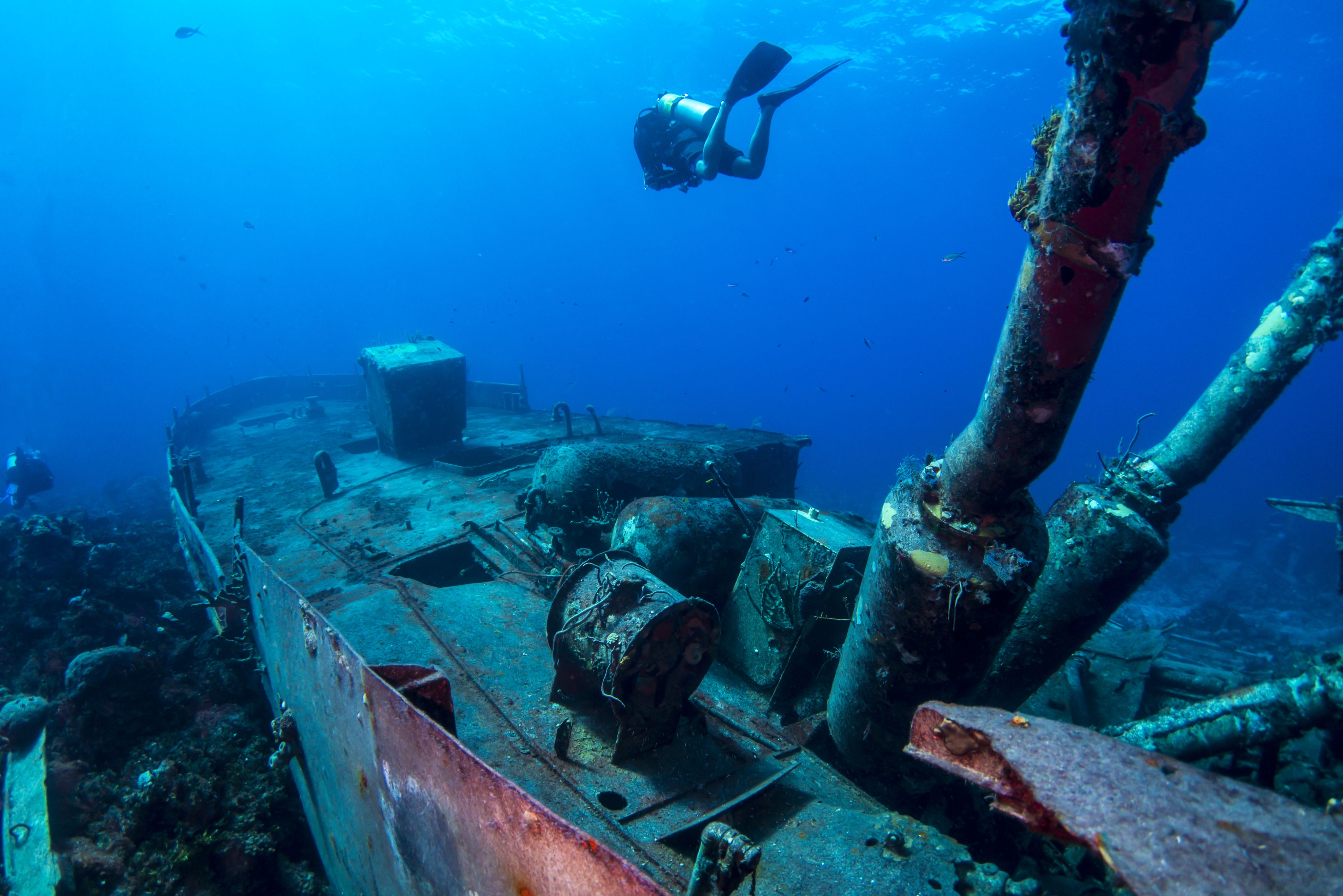
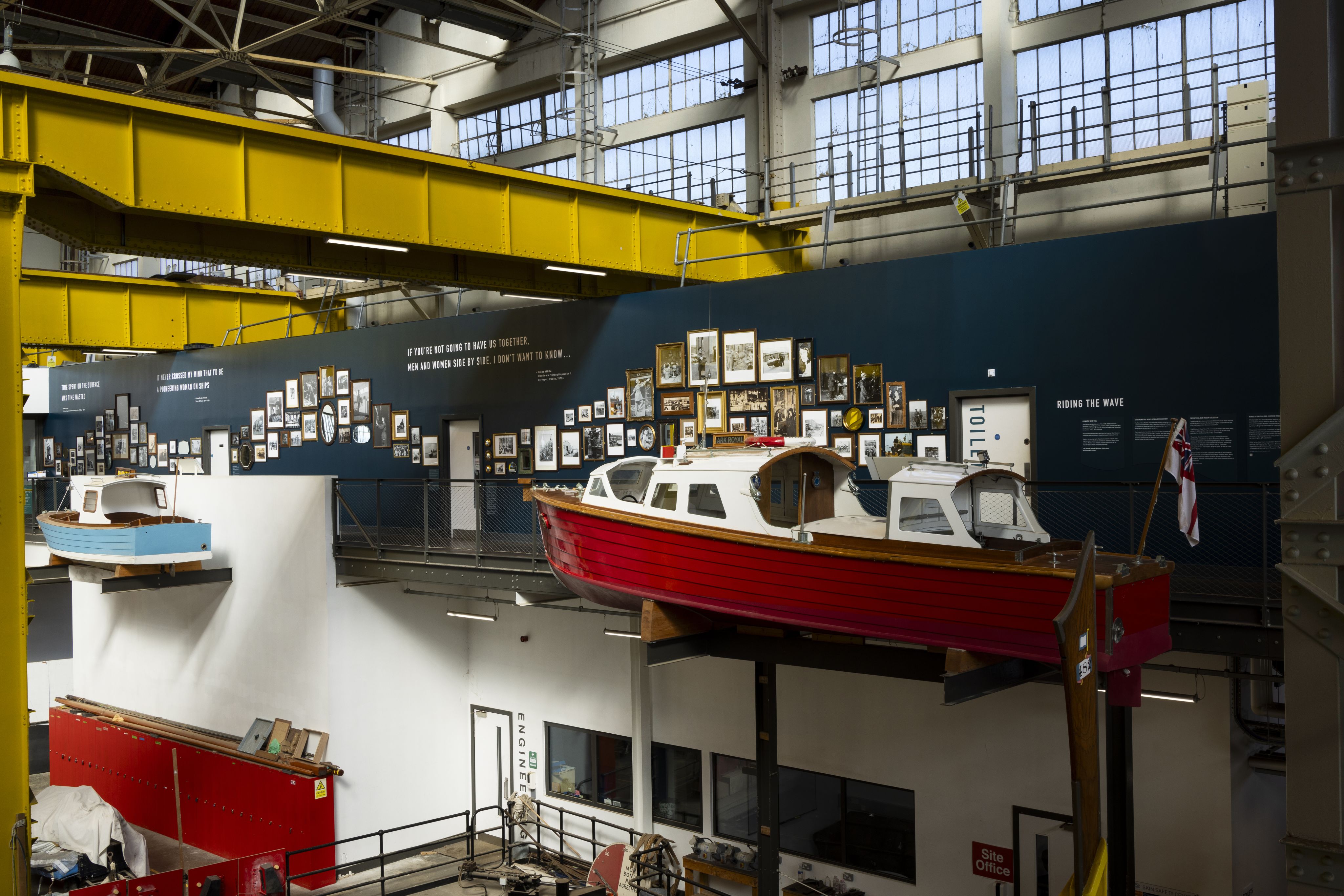
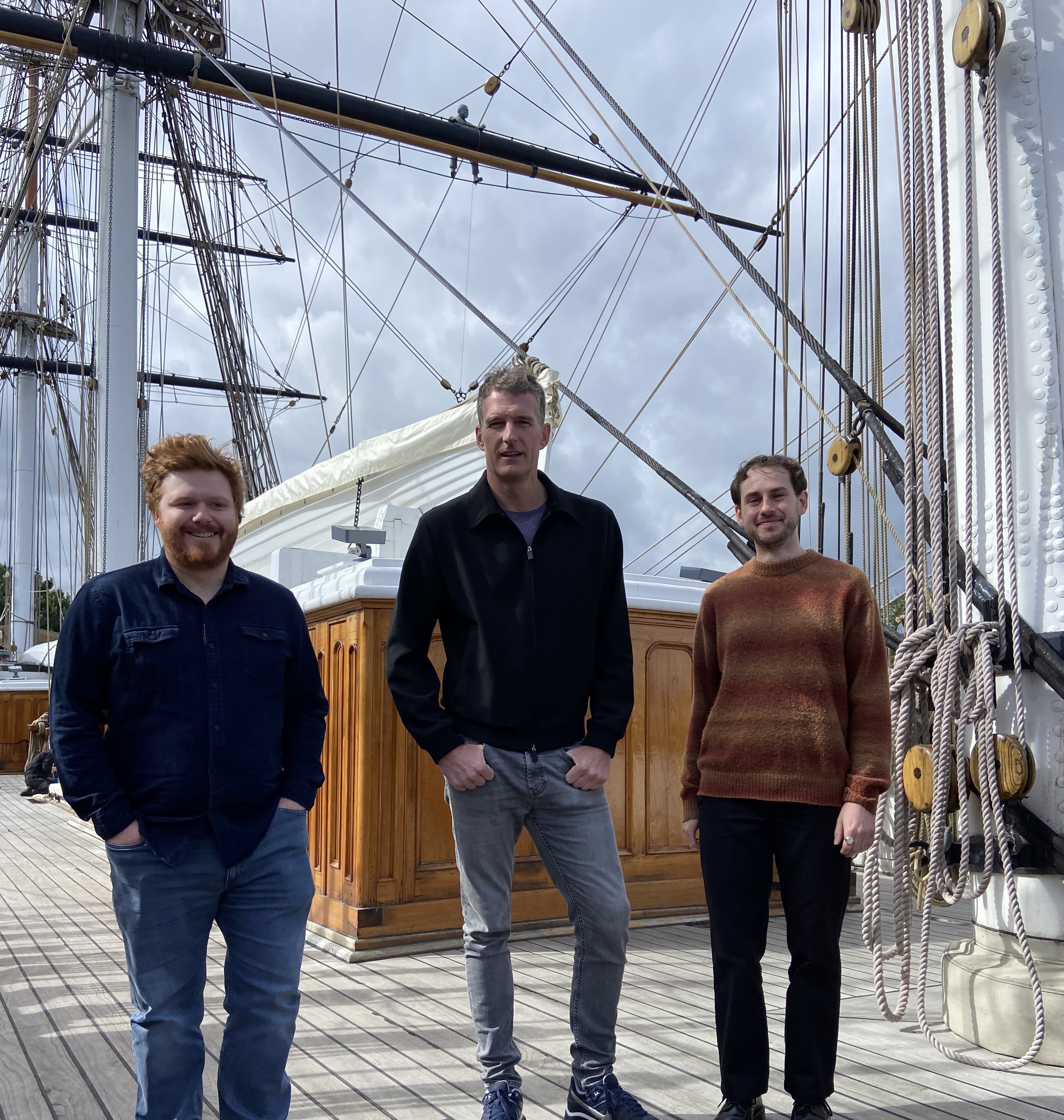
Read more about our work
Lloyd’s Register Foundation is an independent global safety charity with an important mission: to engineer a safer world.
Copyright ©Lloyd’s Register Foundation, 2025.
Lloyd’s Register Foundation is a registered charity
(Reg. no. 1145988) and limited company (Reg. no. 7905861)
registered in England and Wales, and owner of Lloyd’s Register Group Limited.
Registered Office:
71 Fenchurch Street, London, EC3M 4BS, United Kingdom
T +44 (0)20 7709 9166
F +44 (0)20 7488 4796
E info@lrfoundation.org.uk
